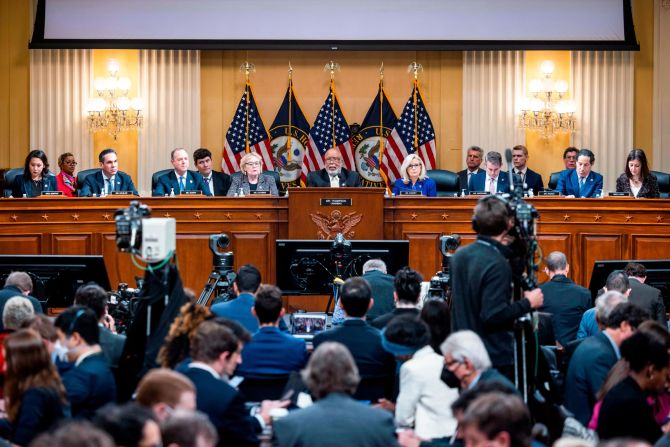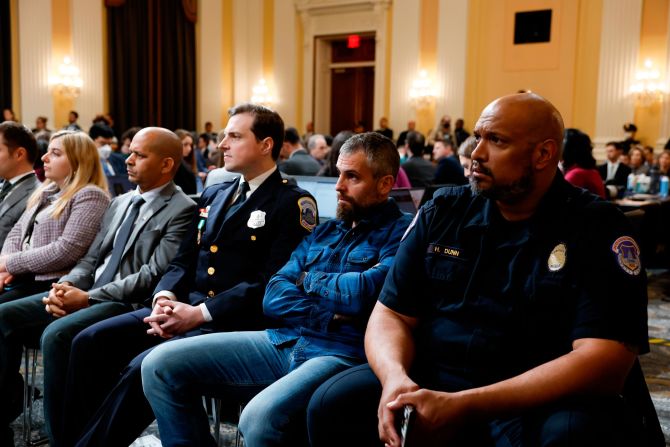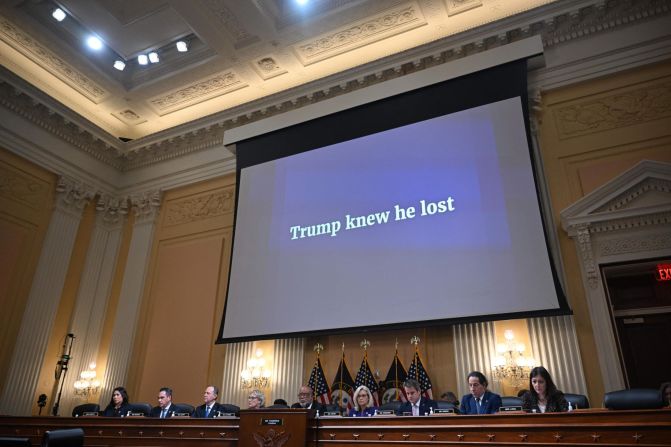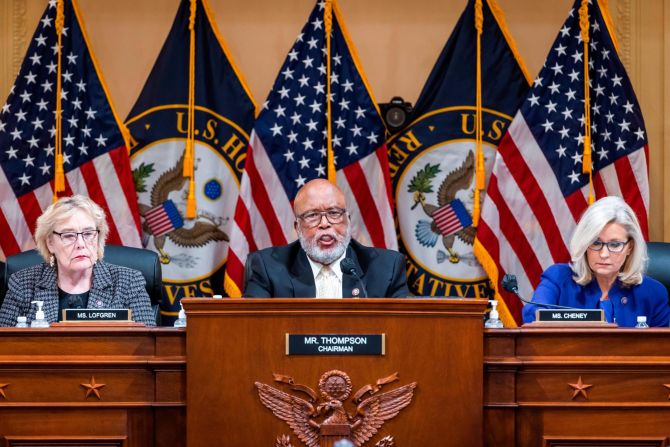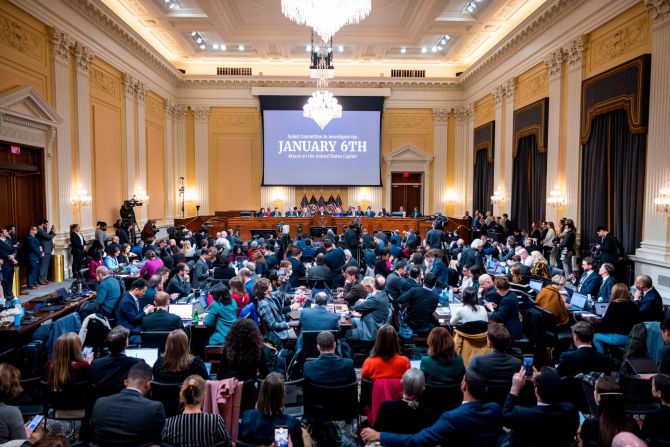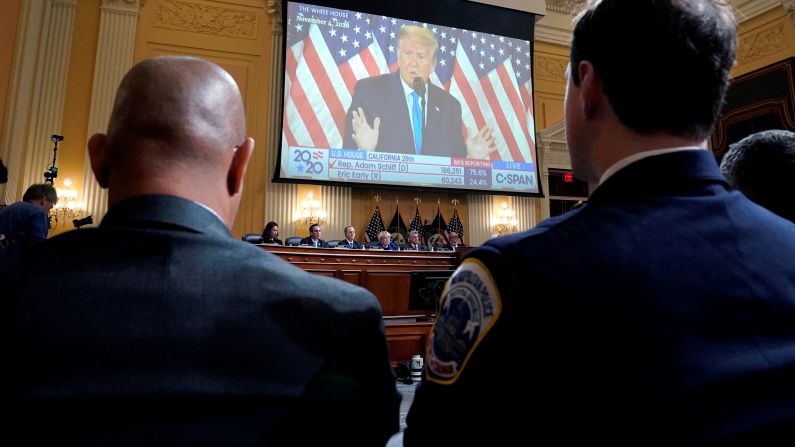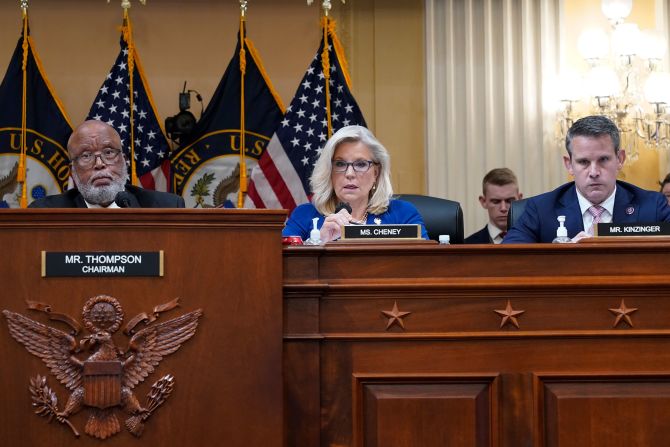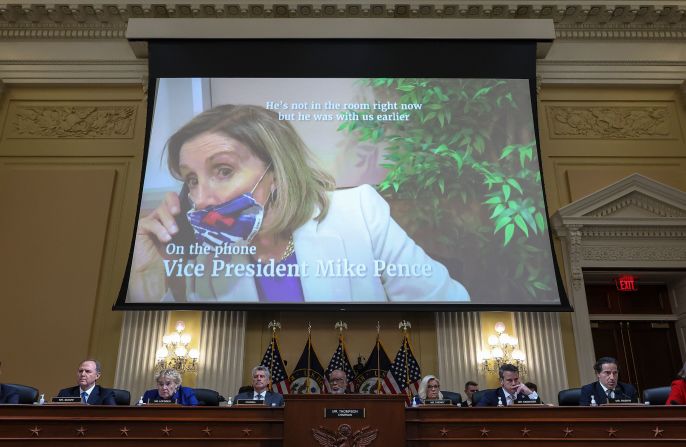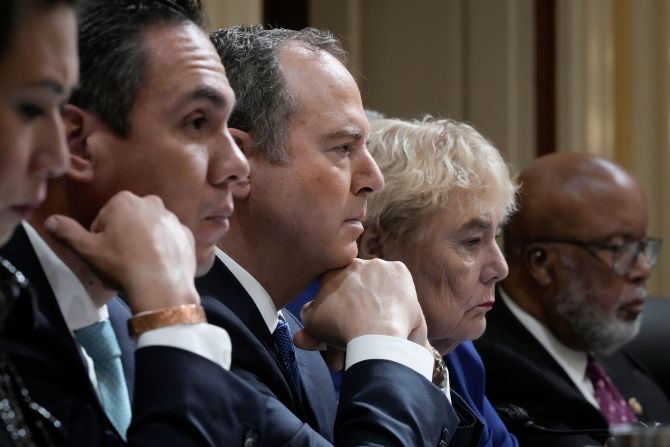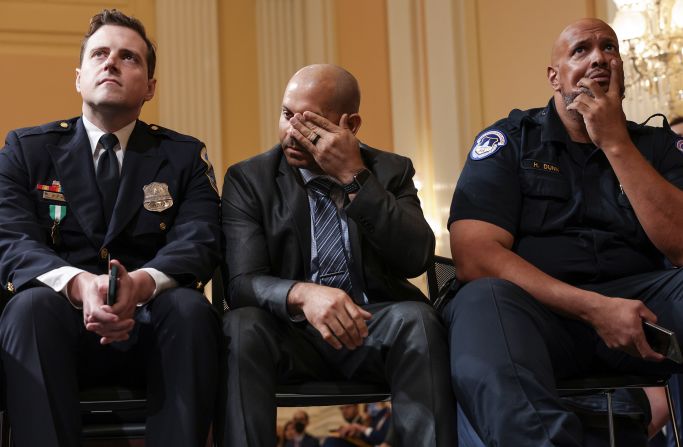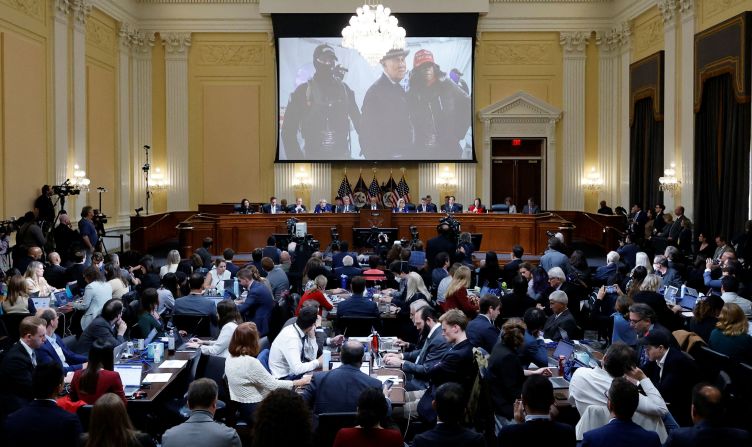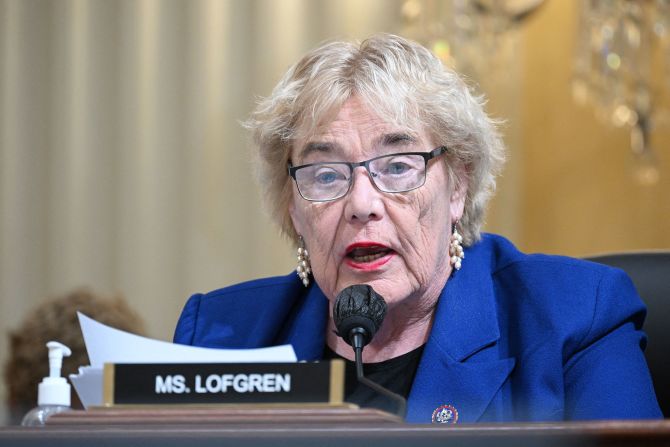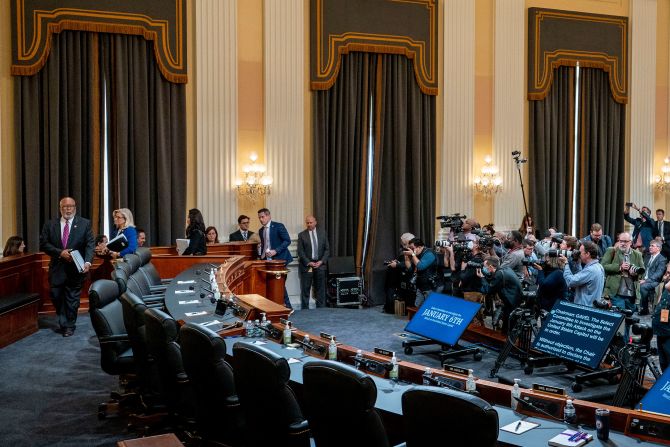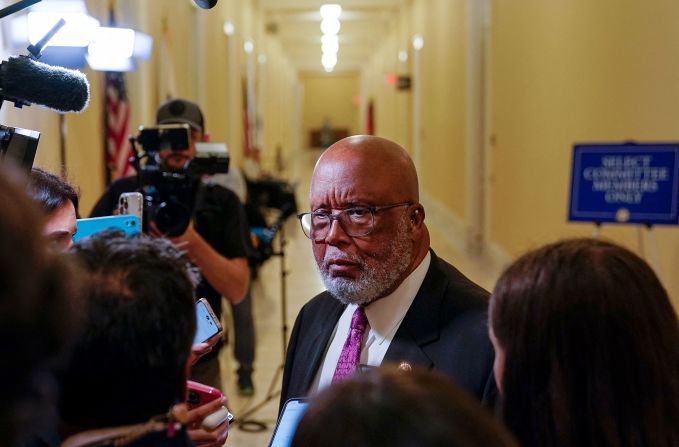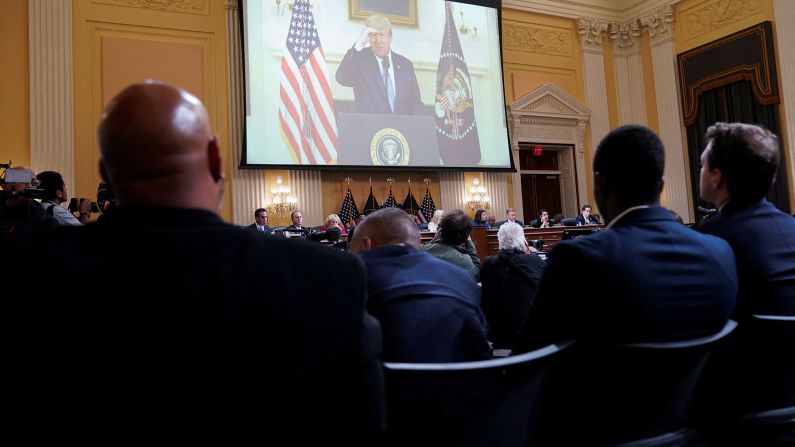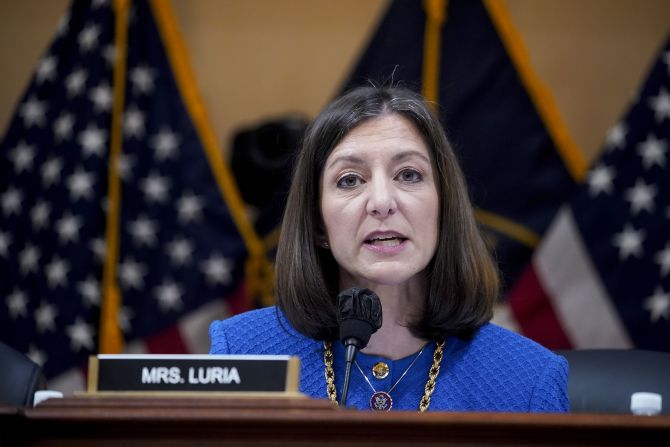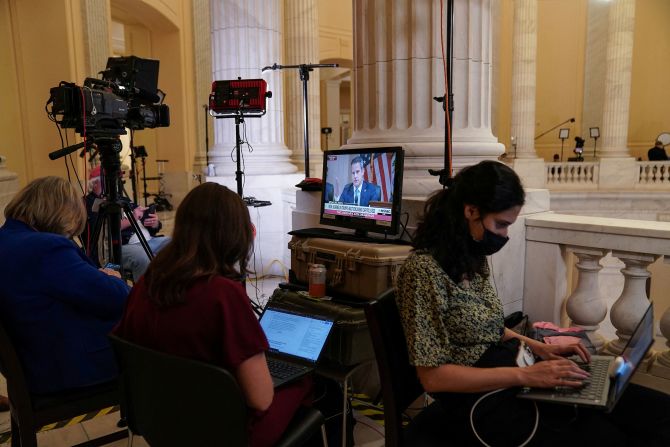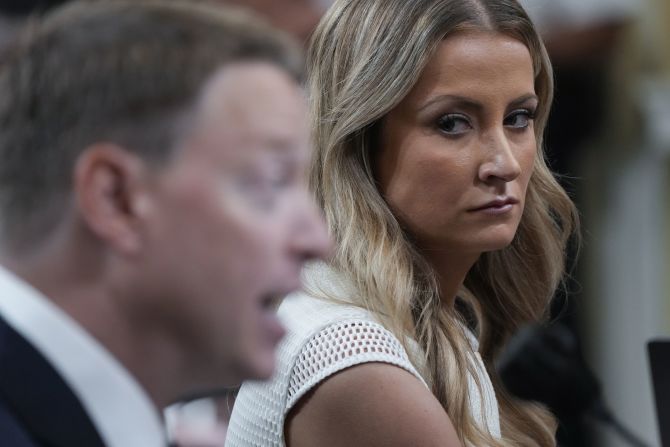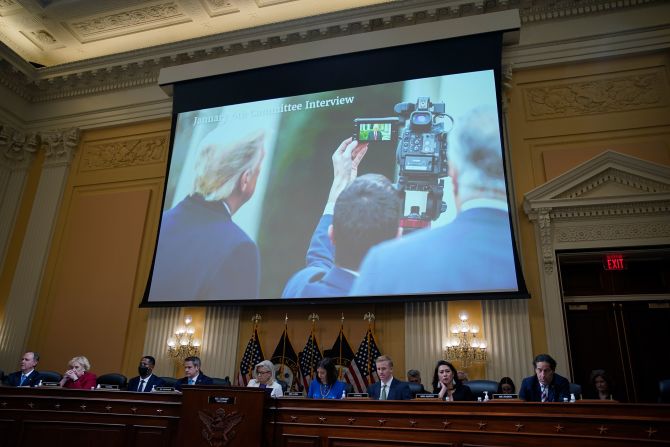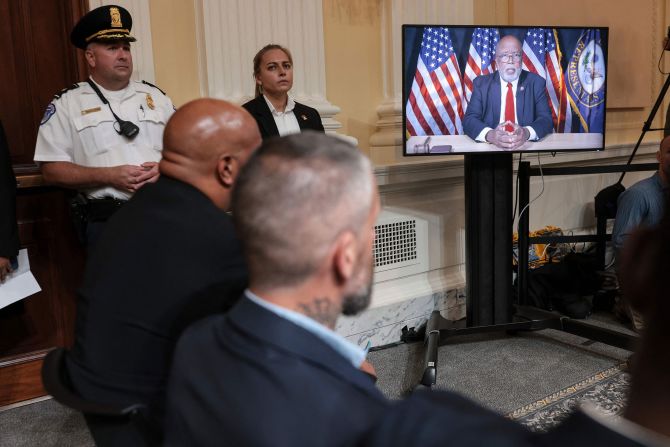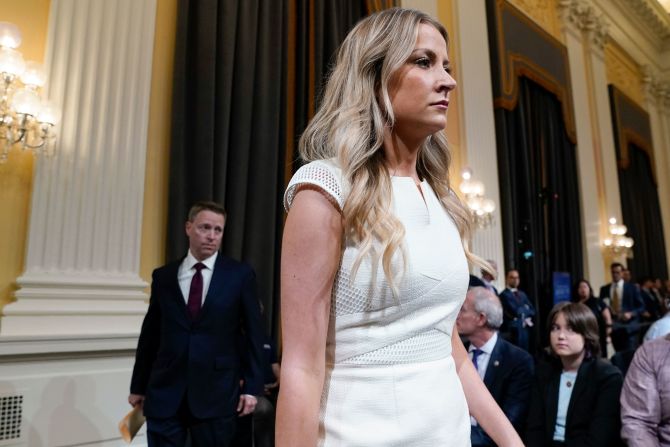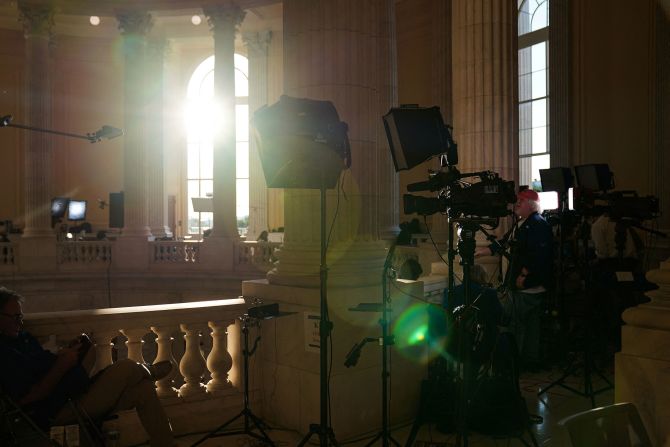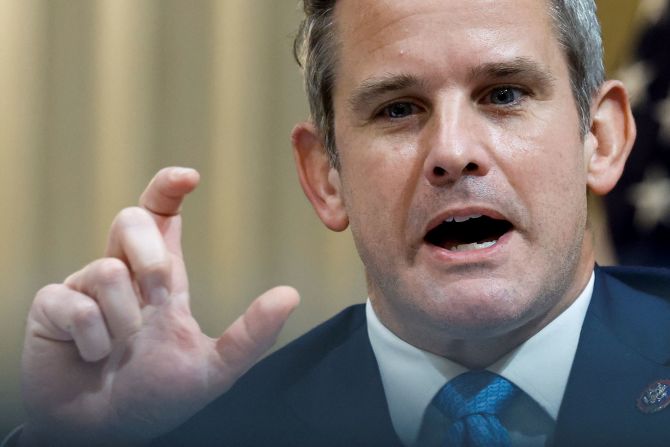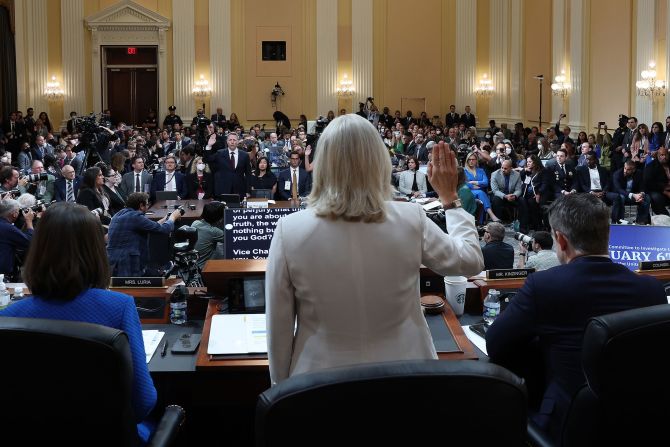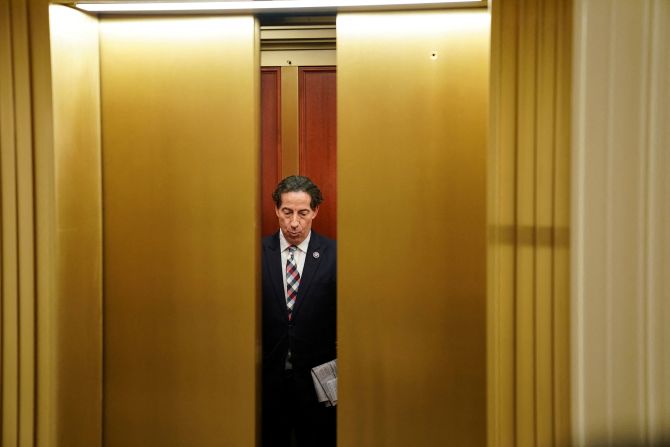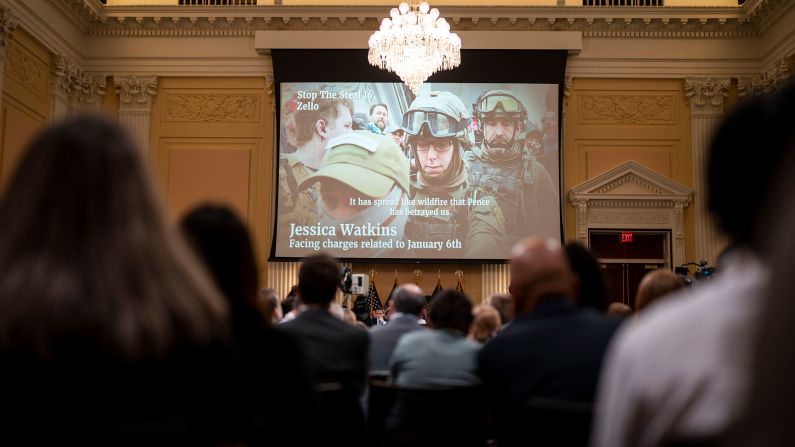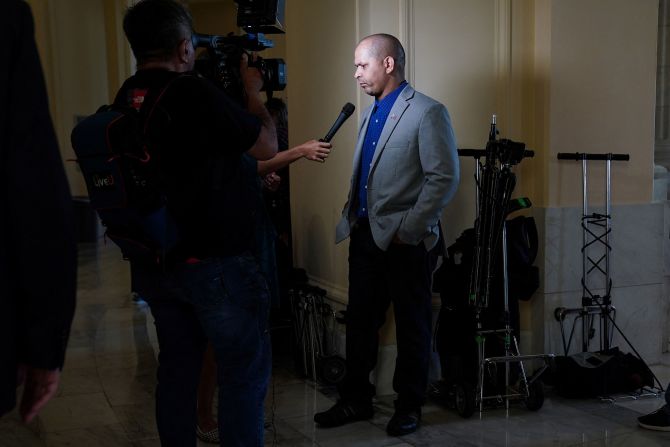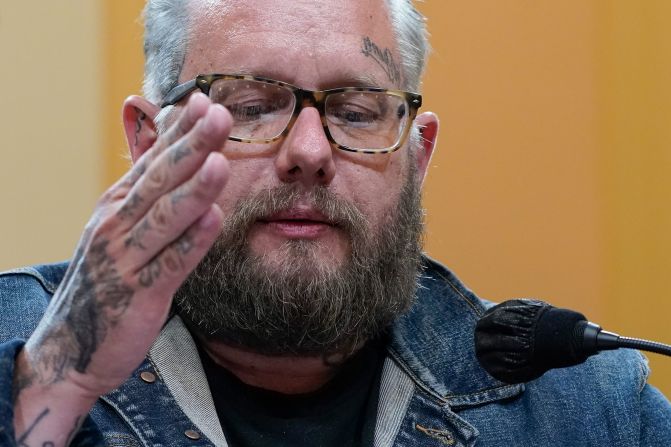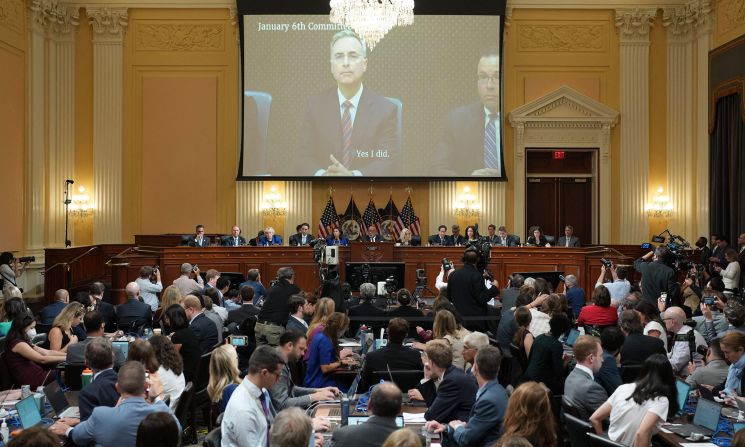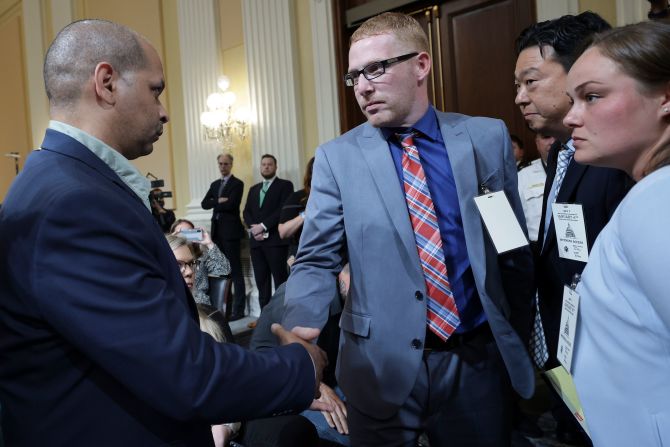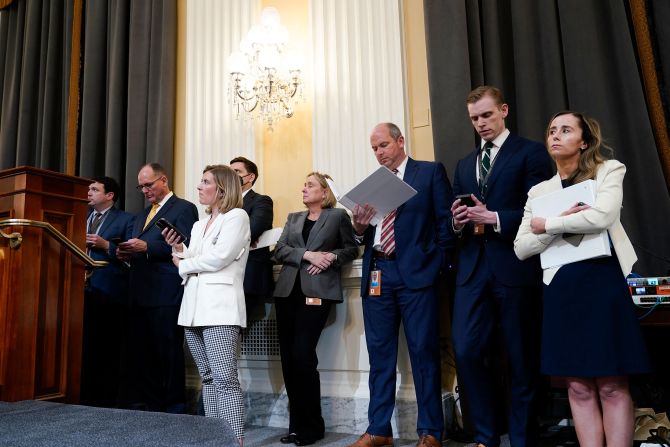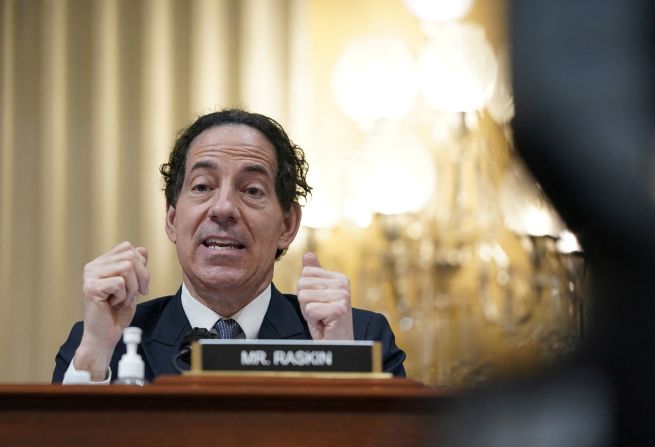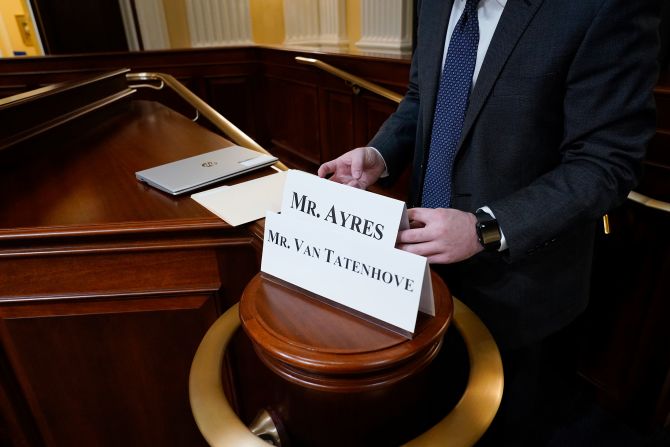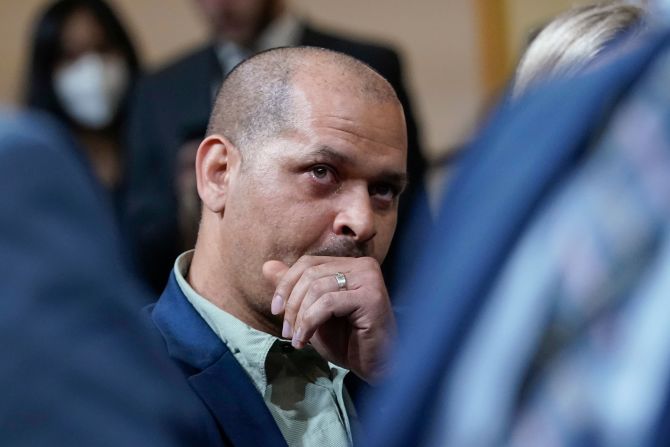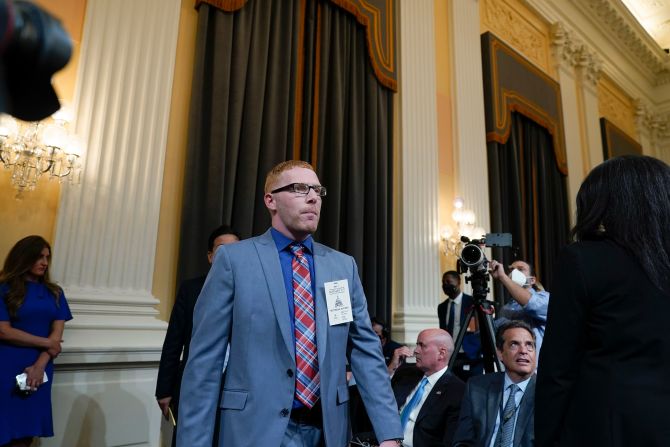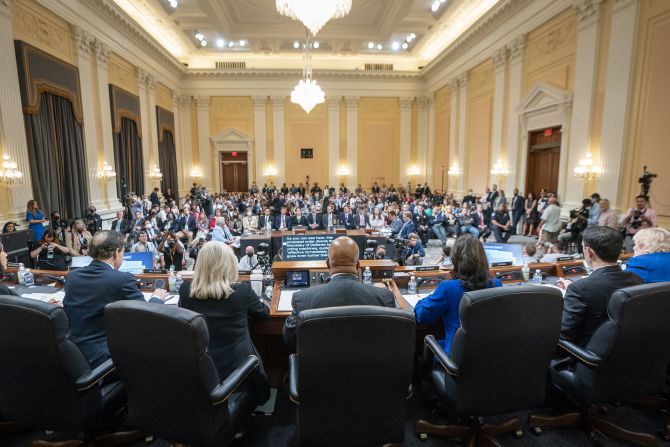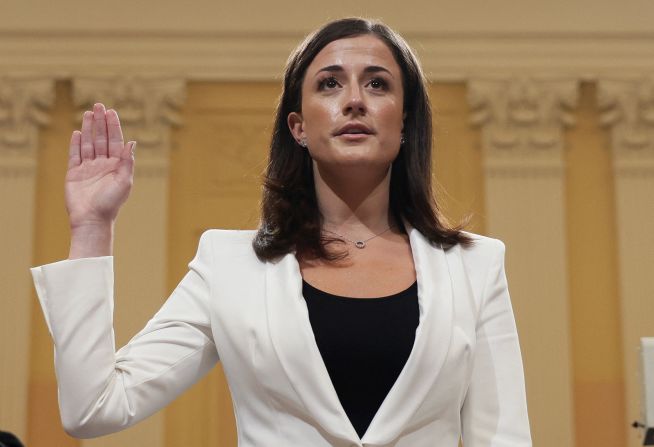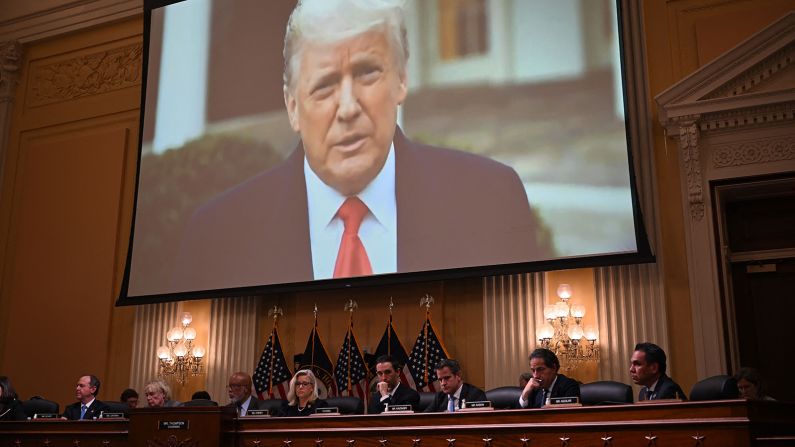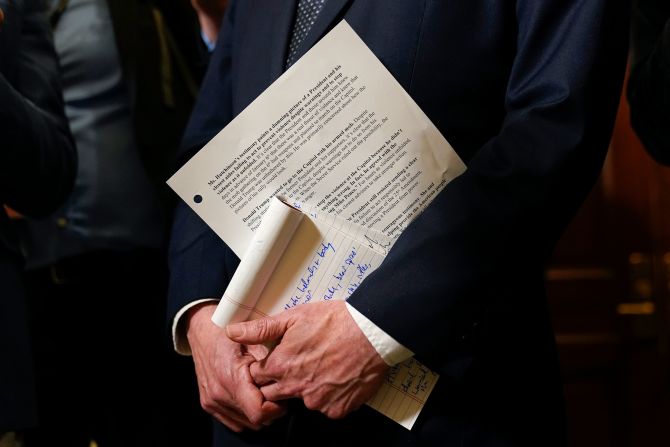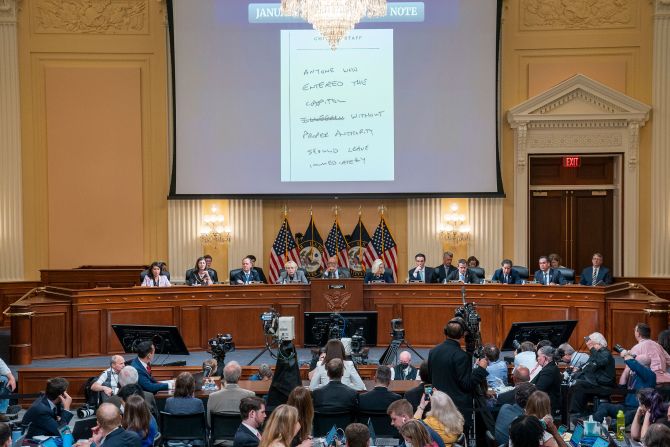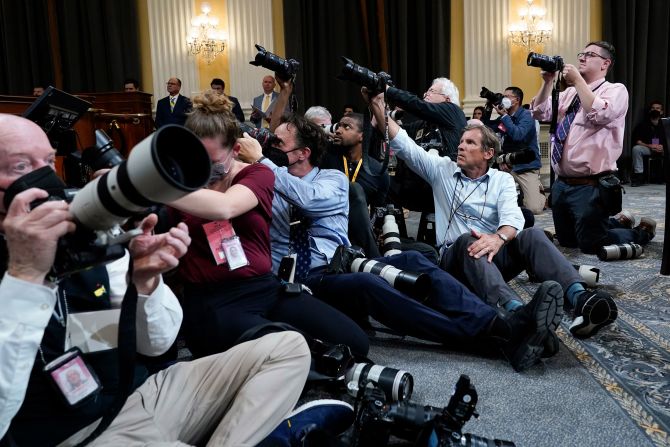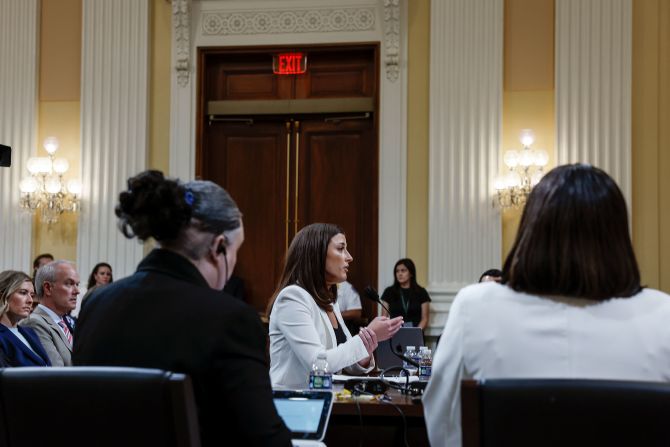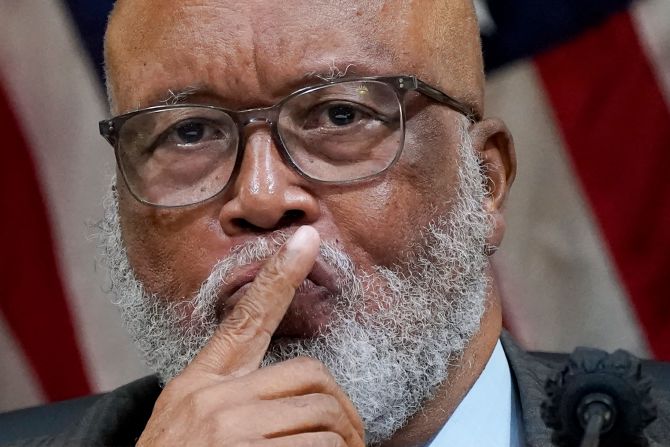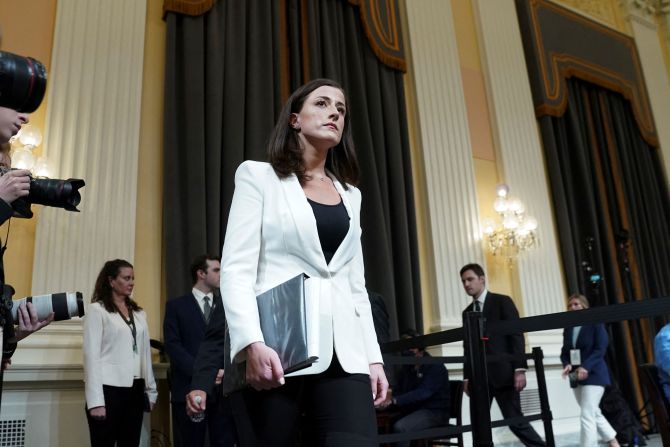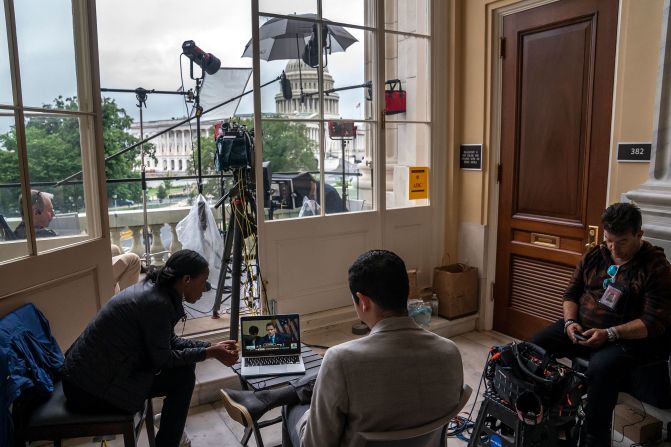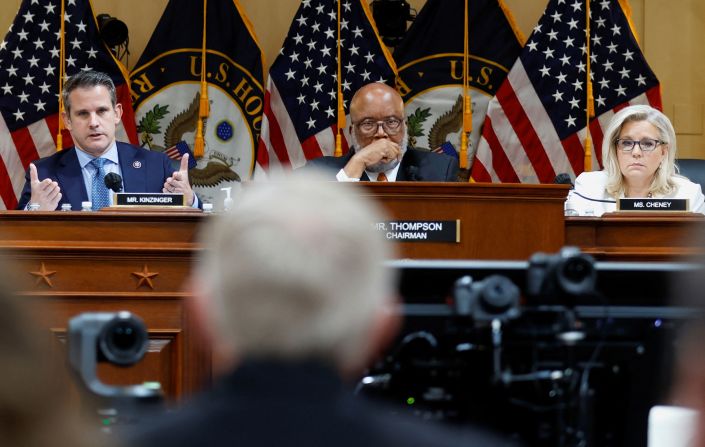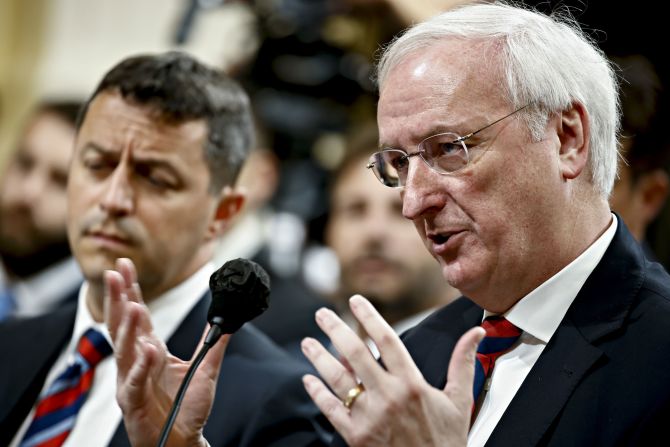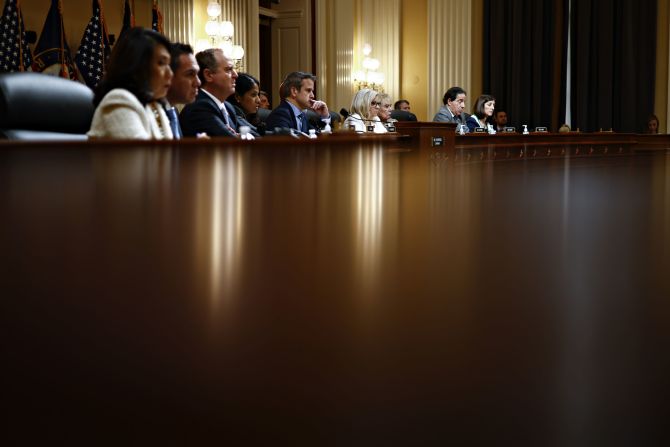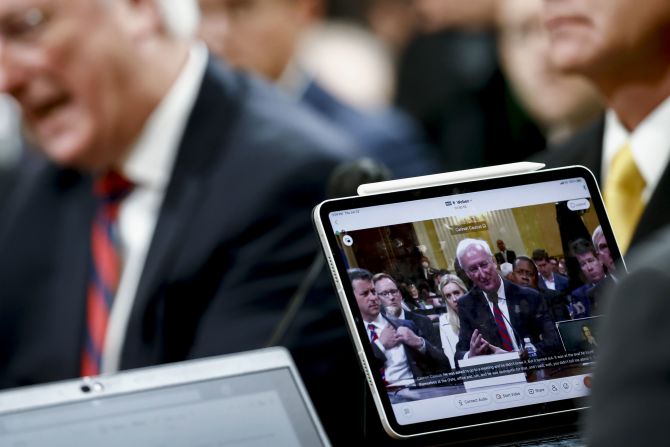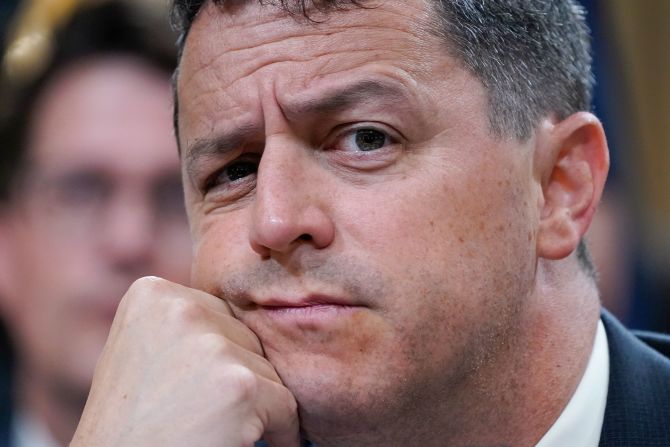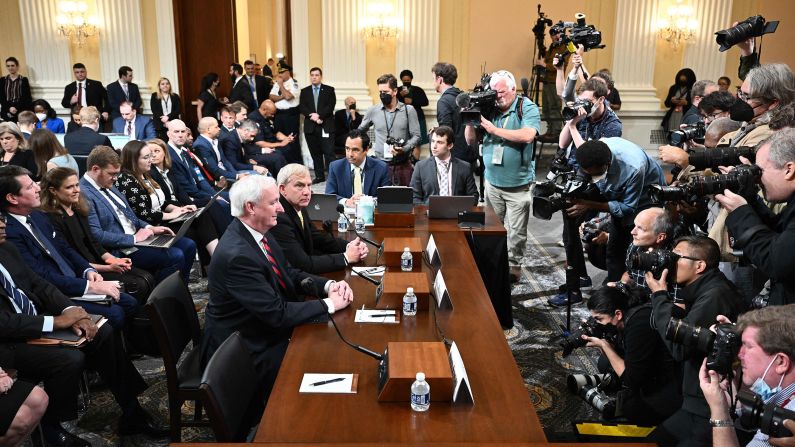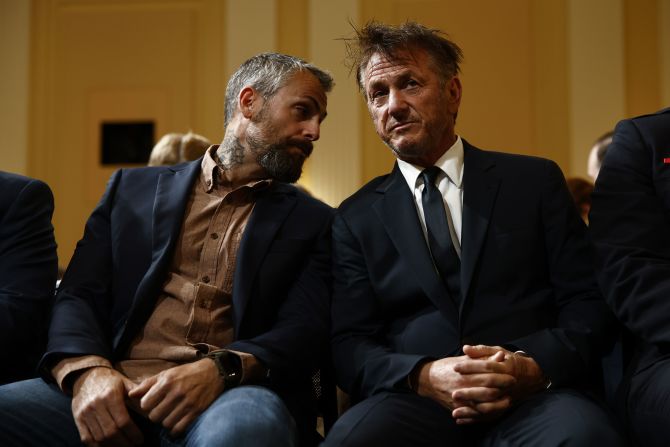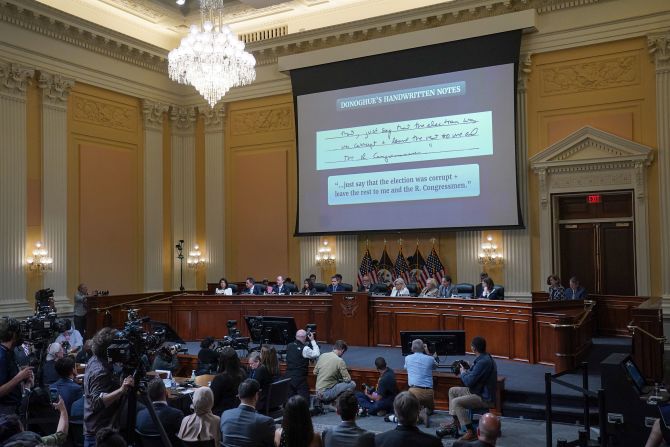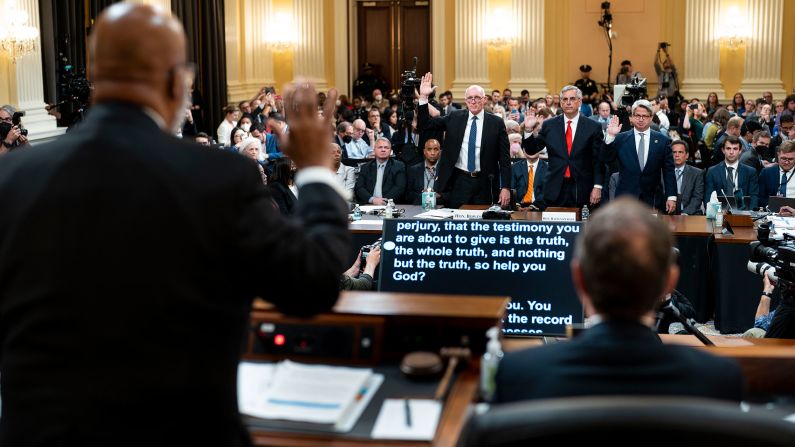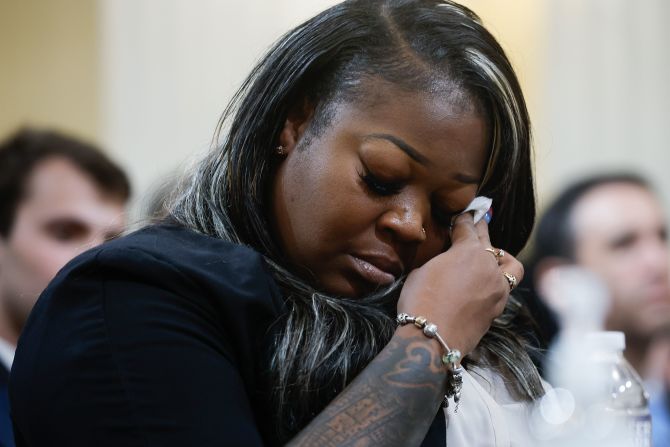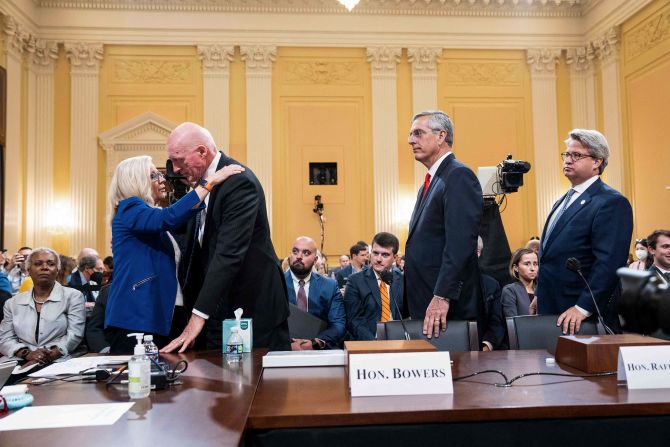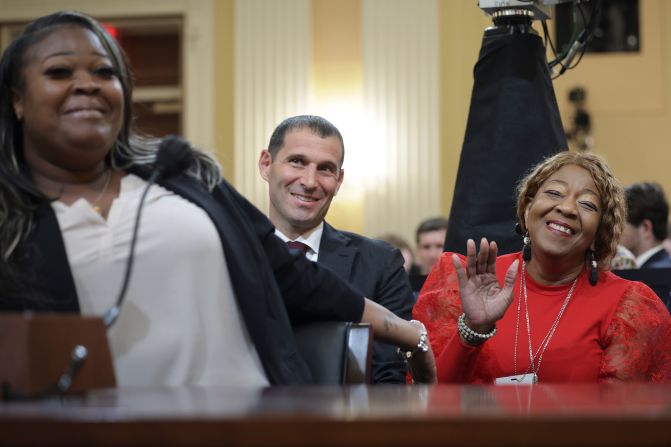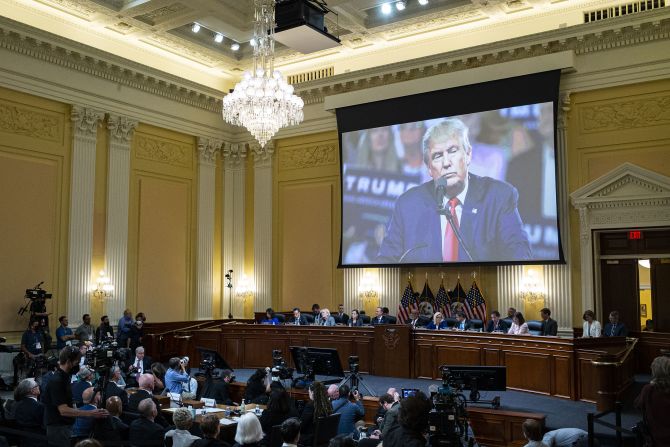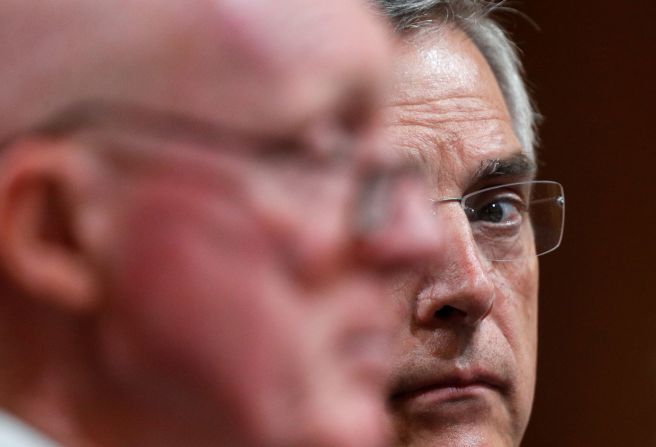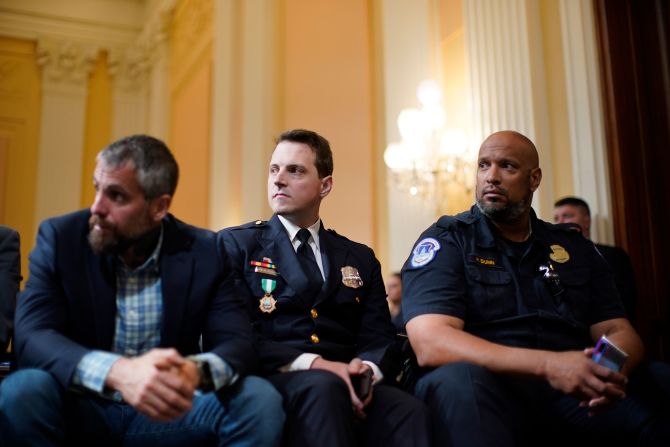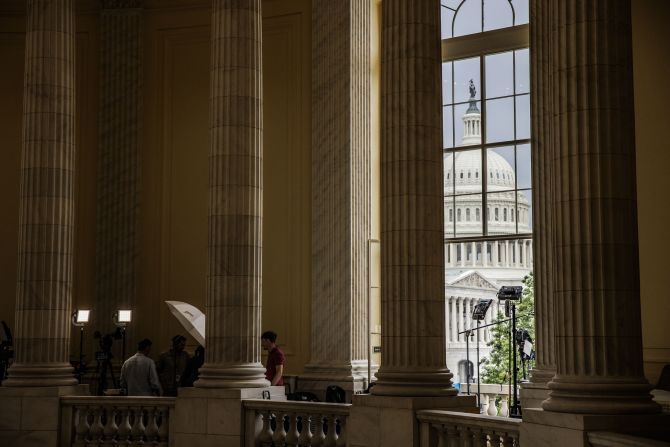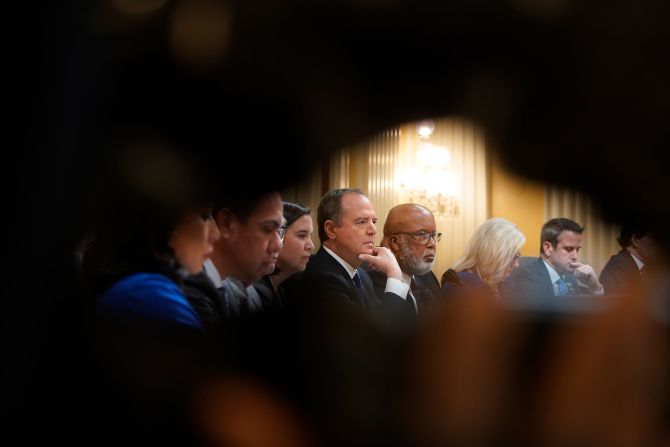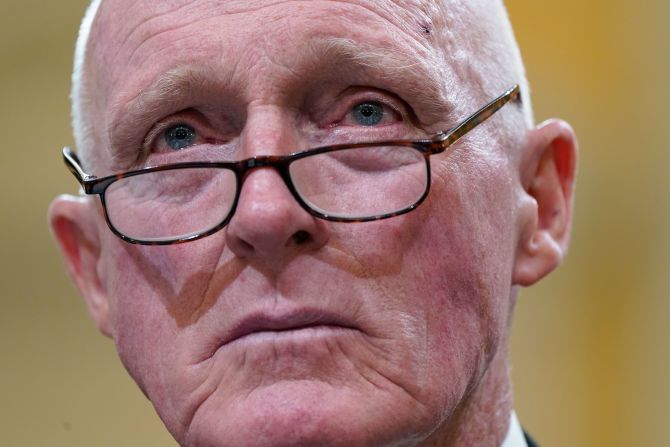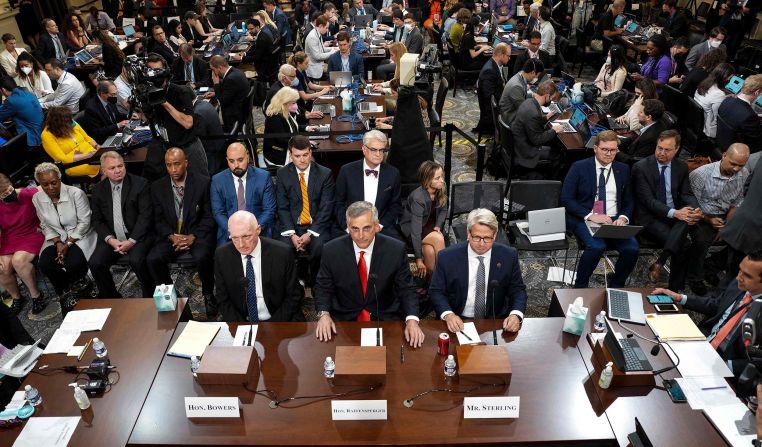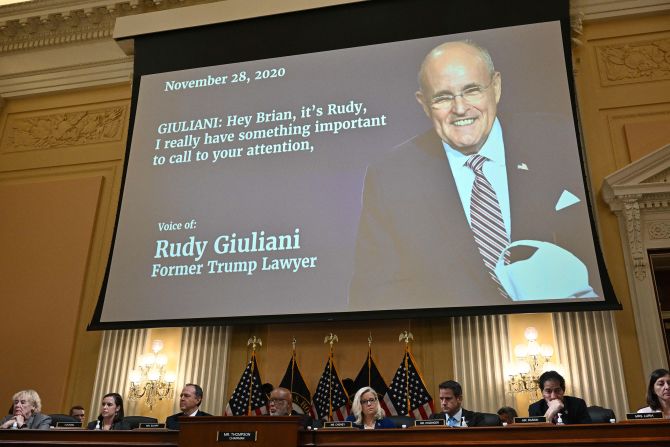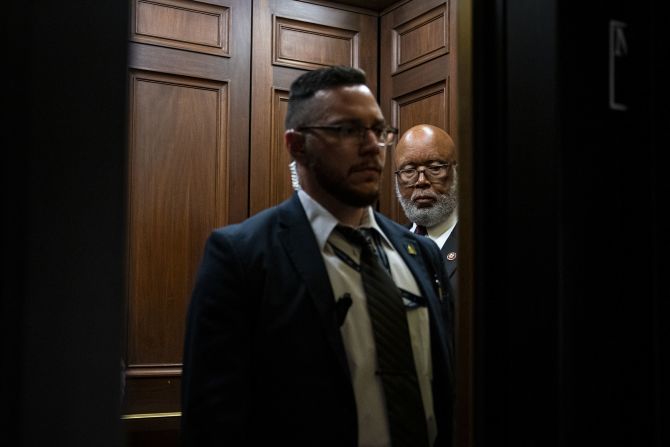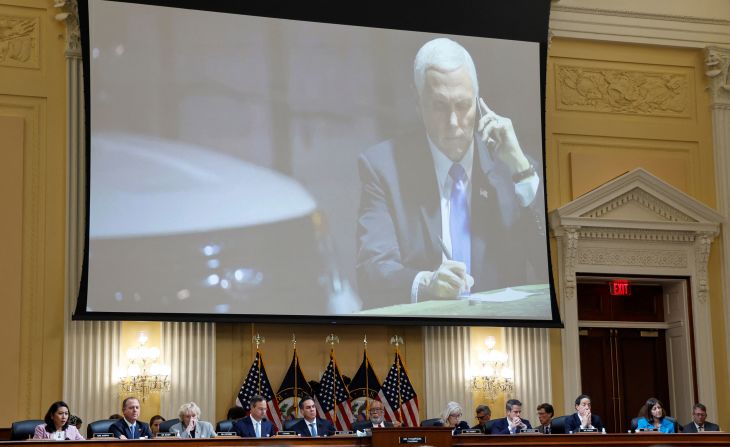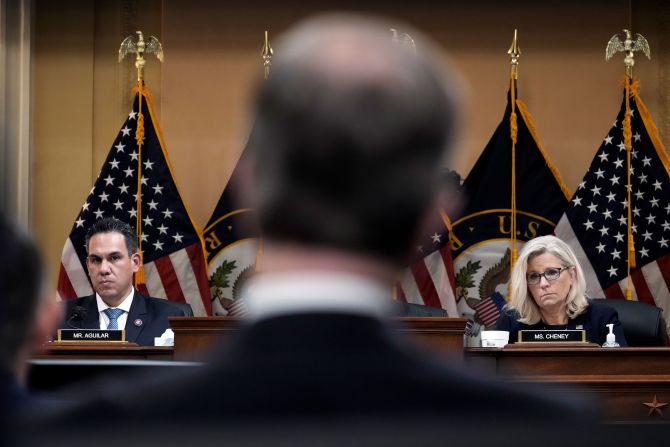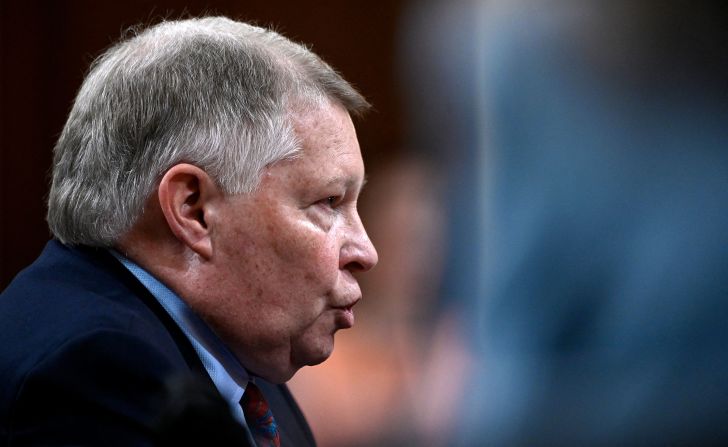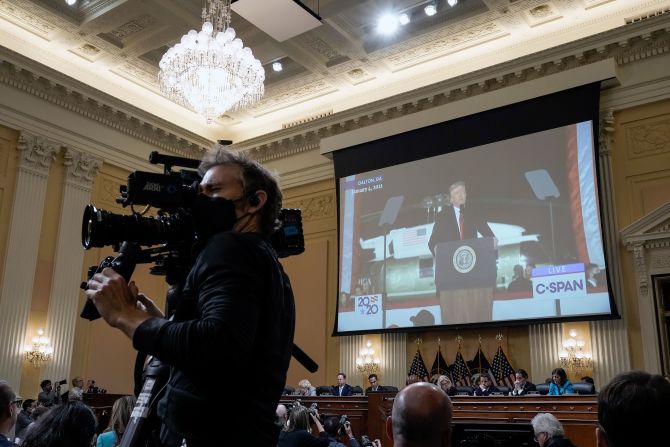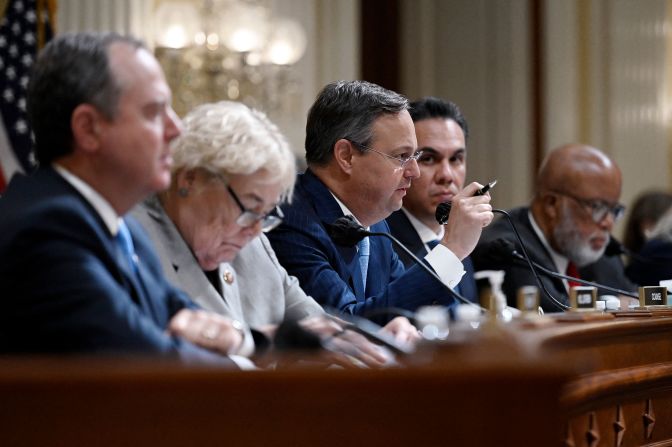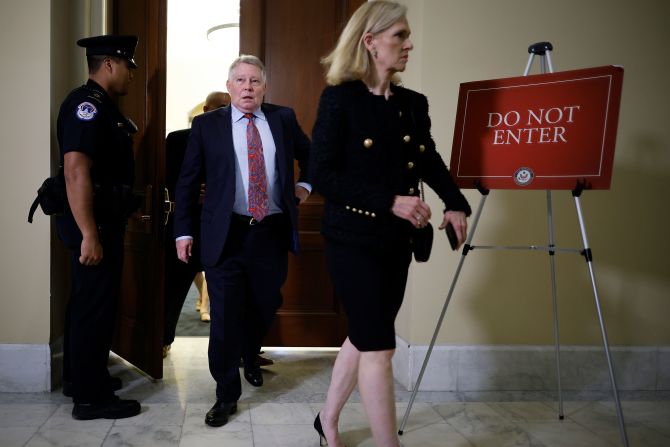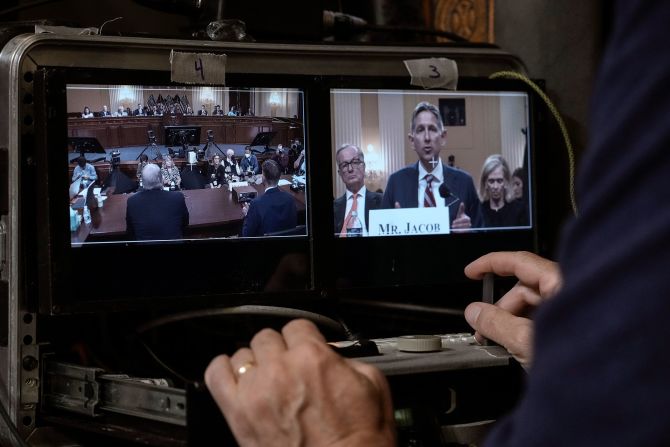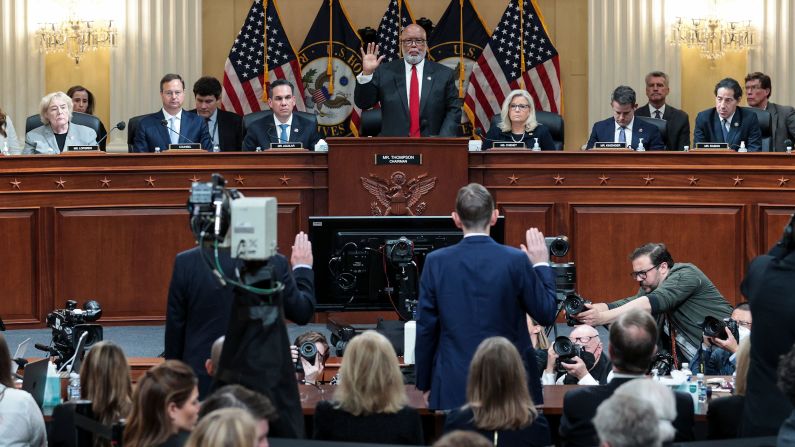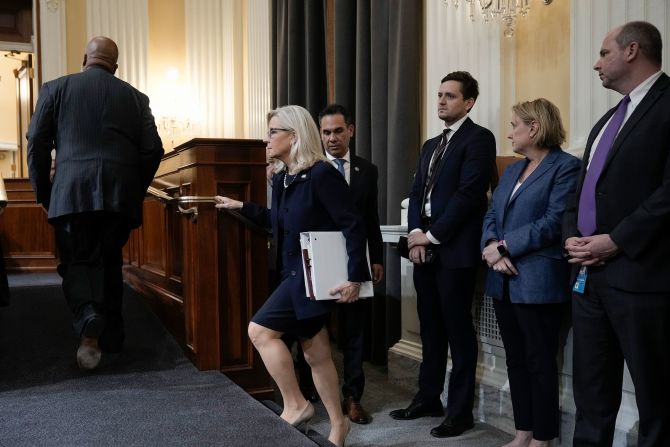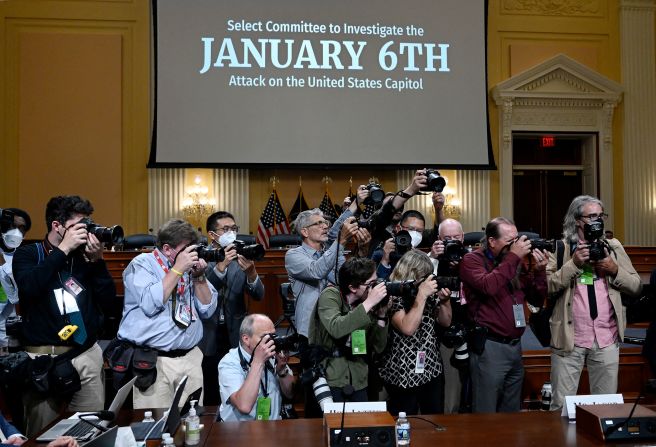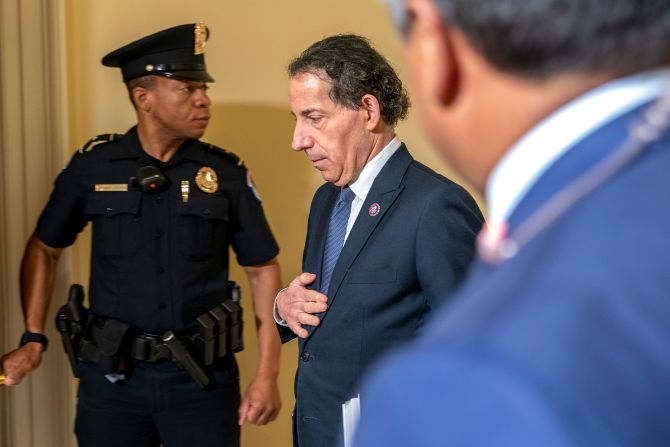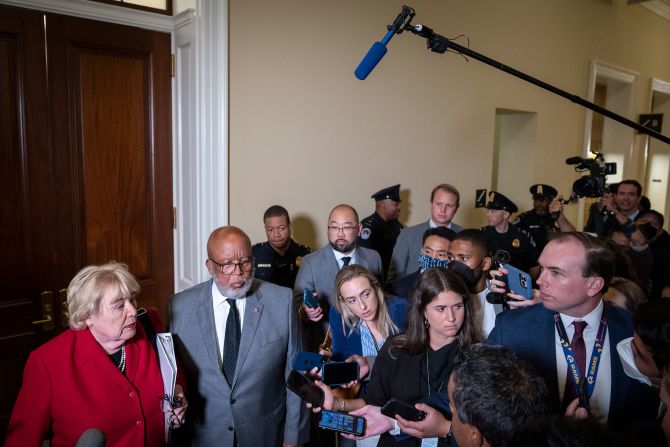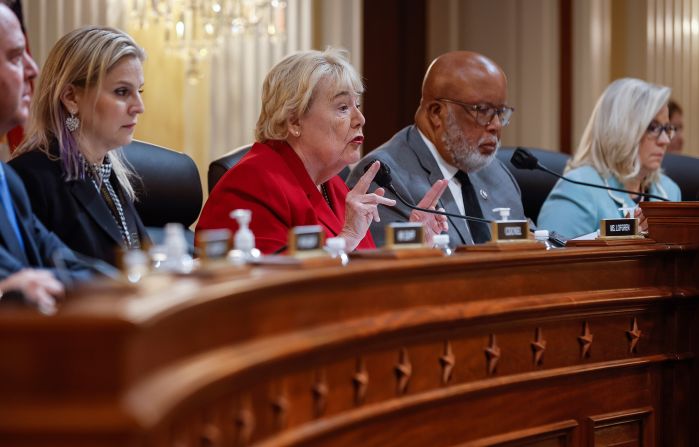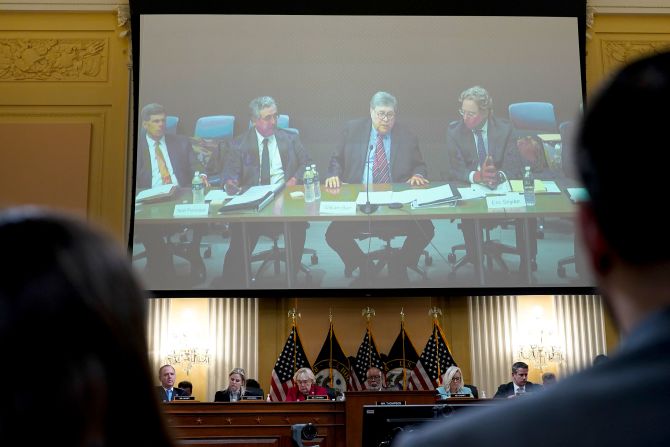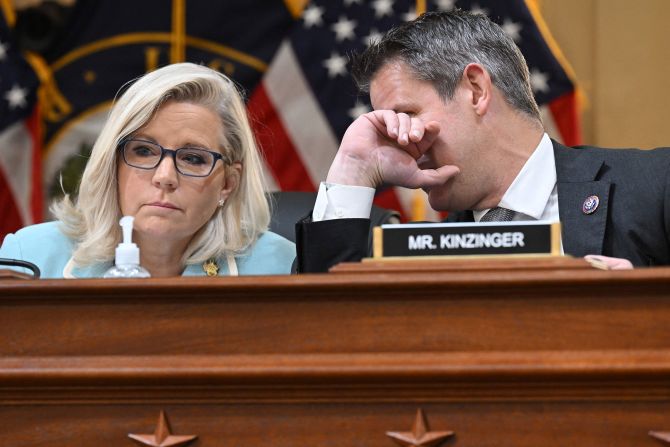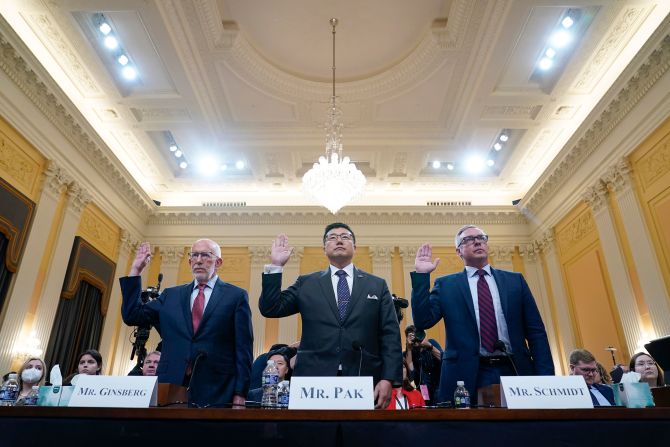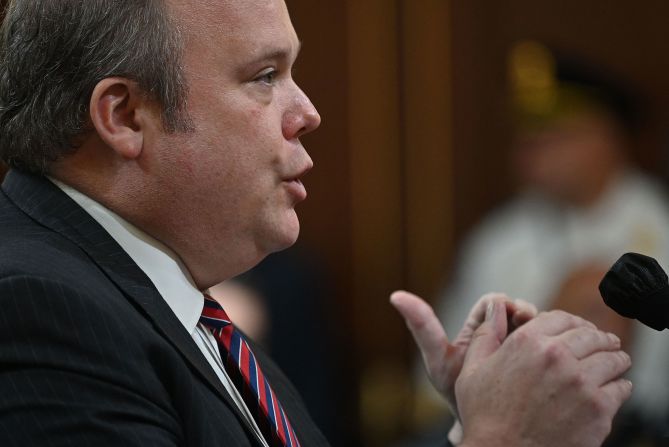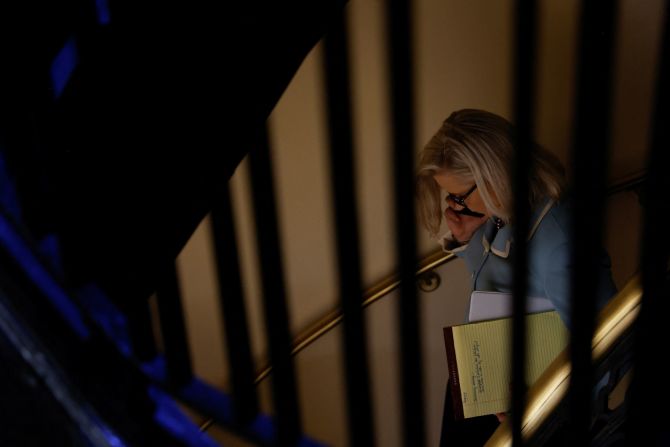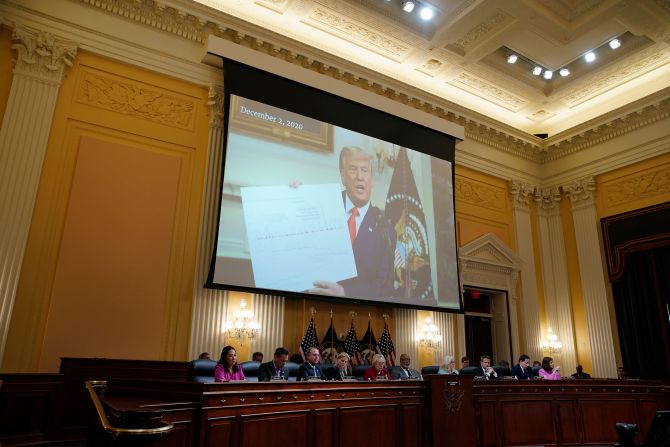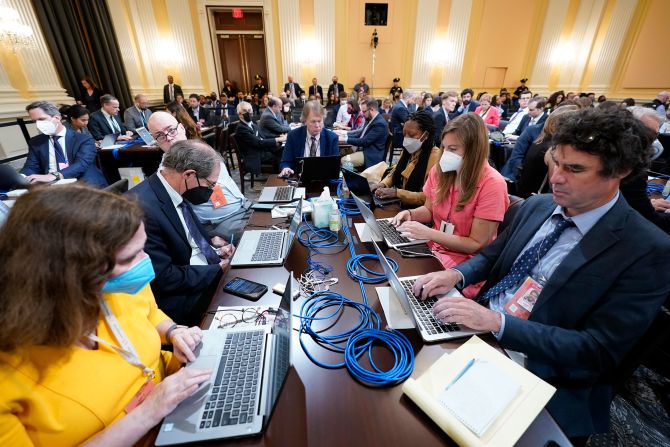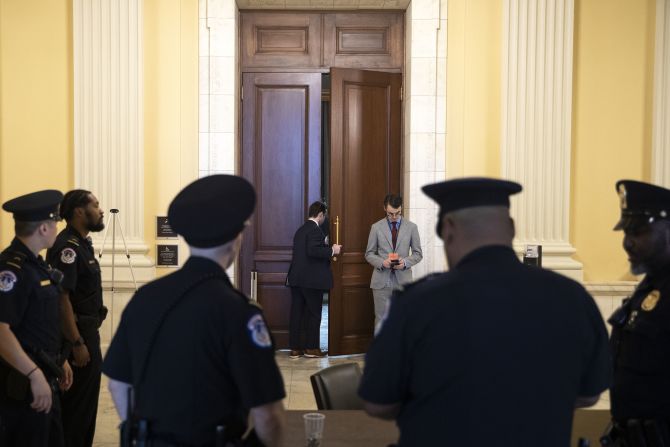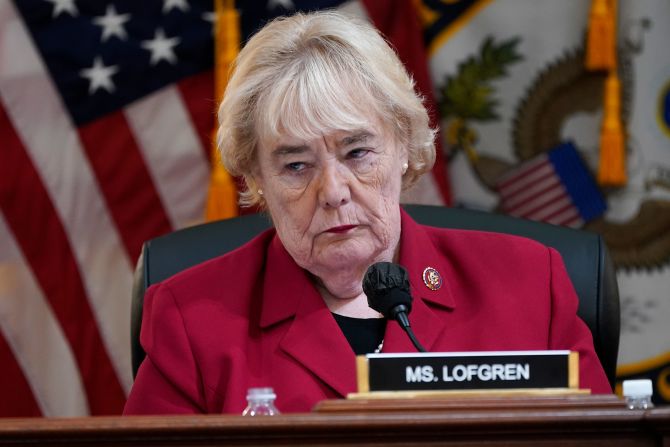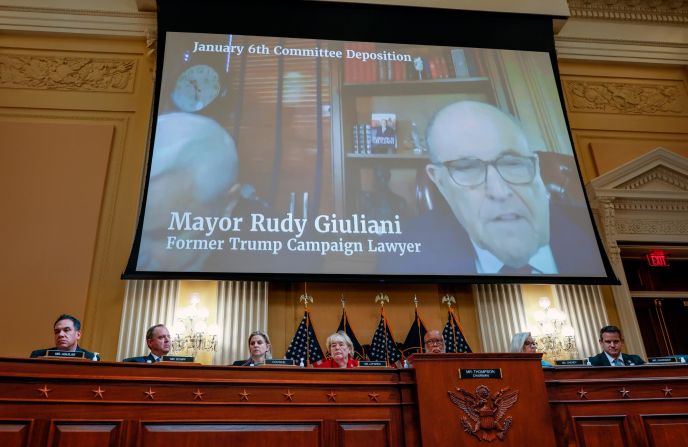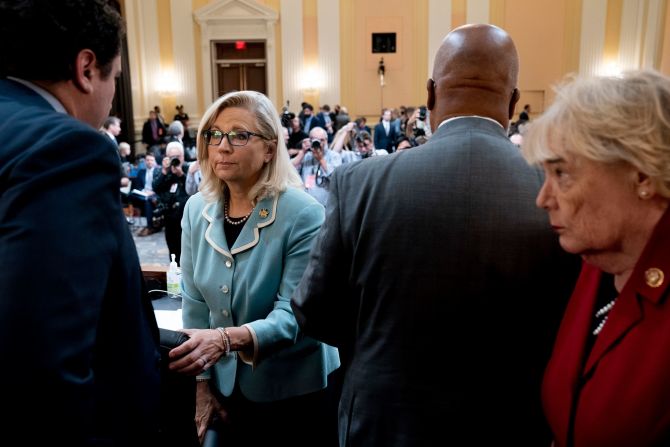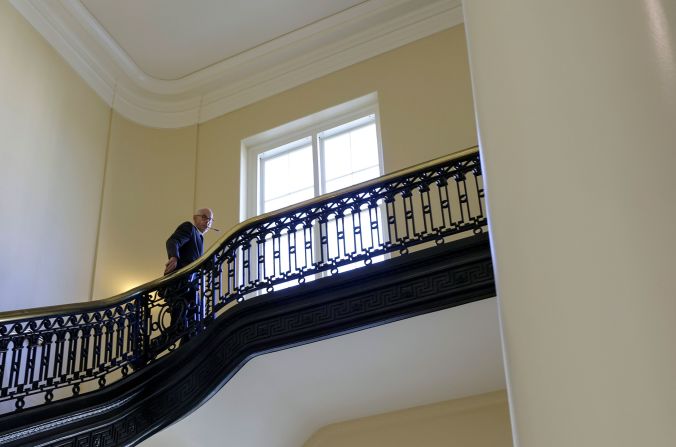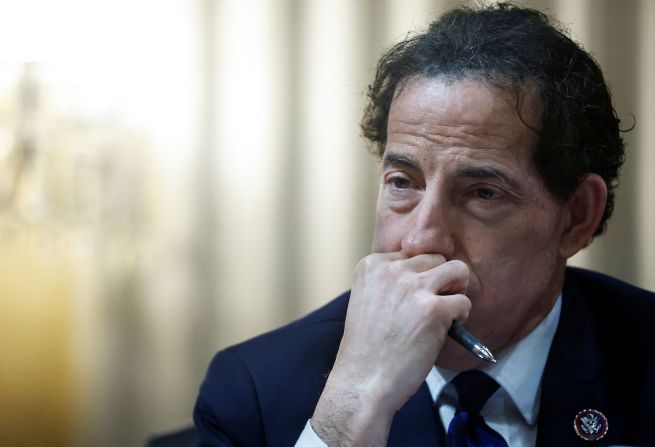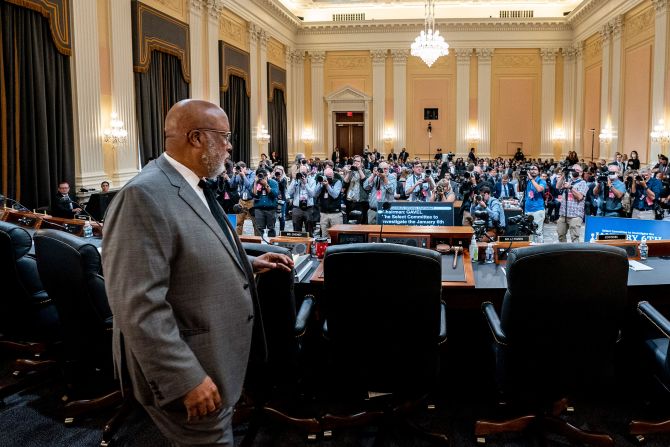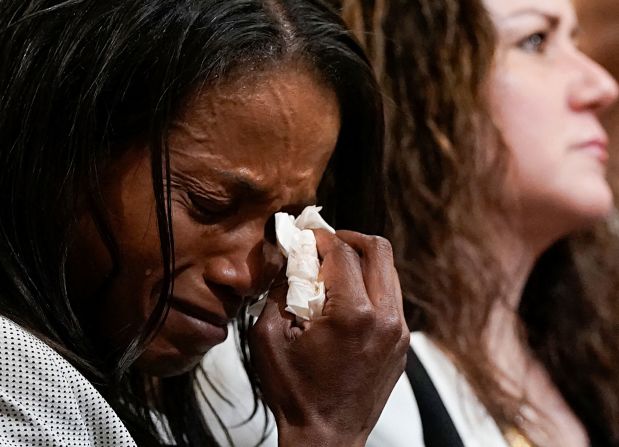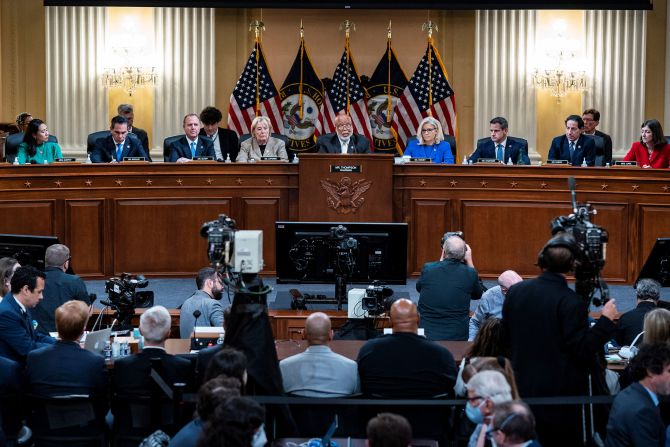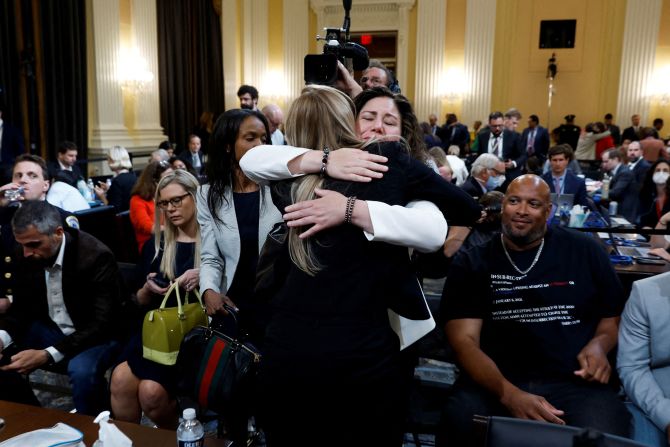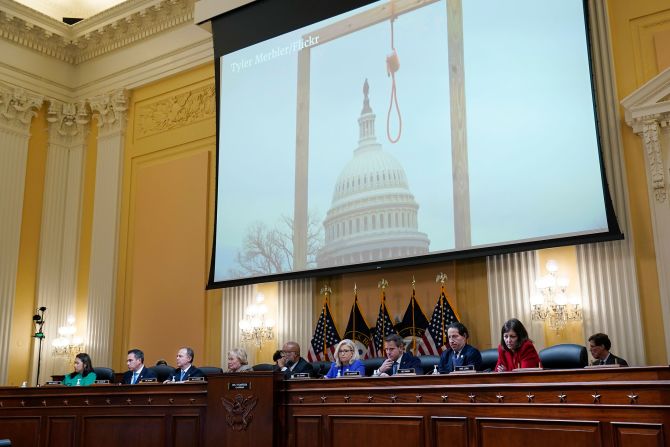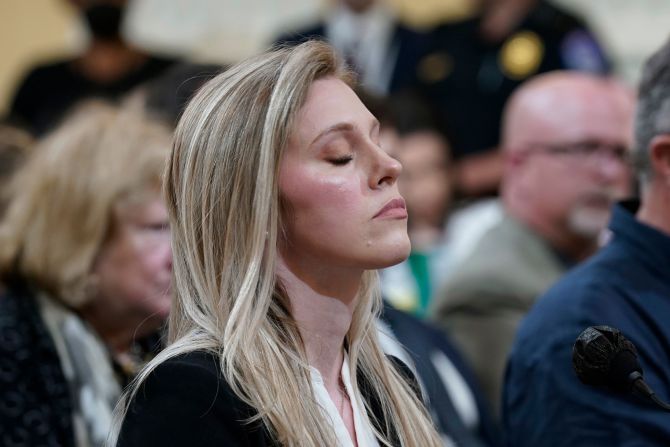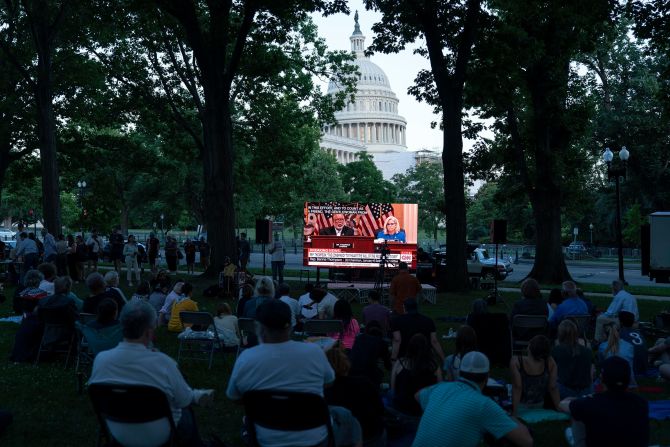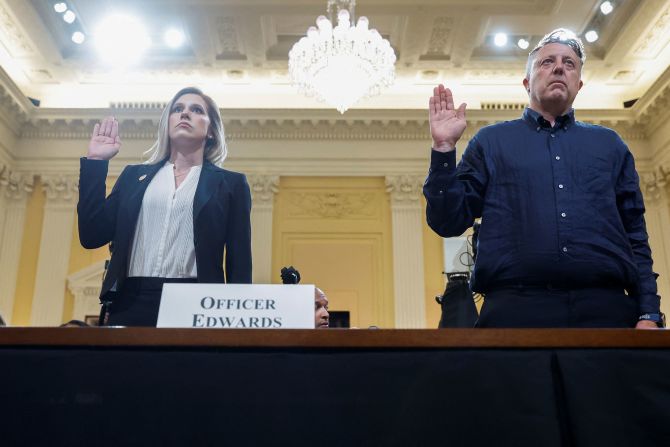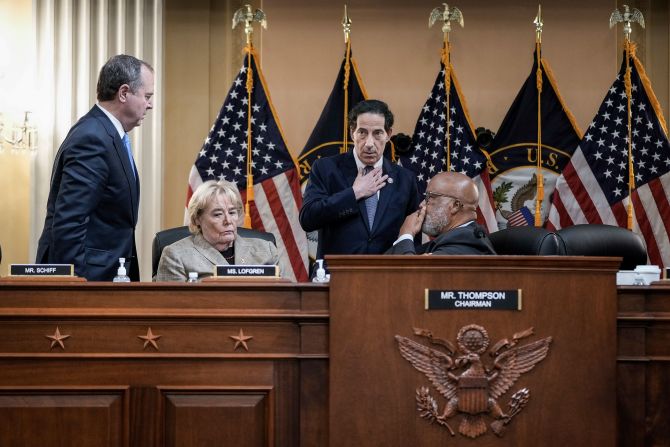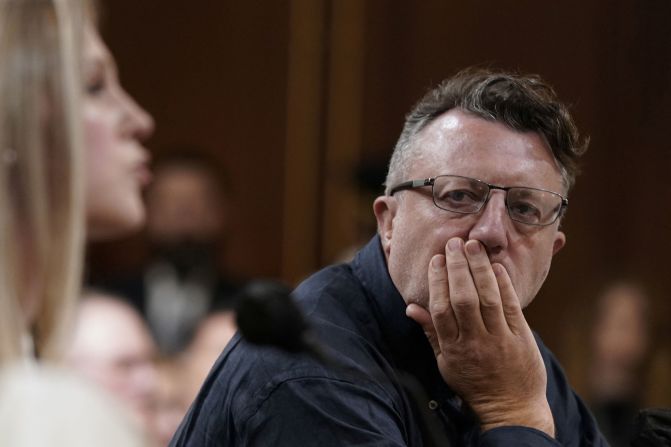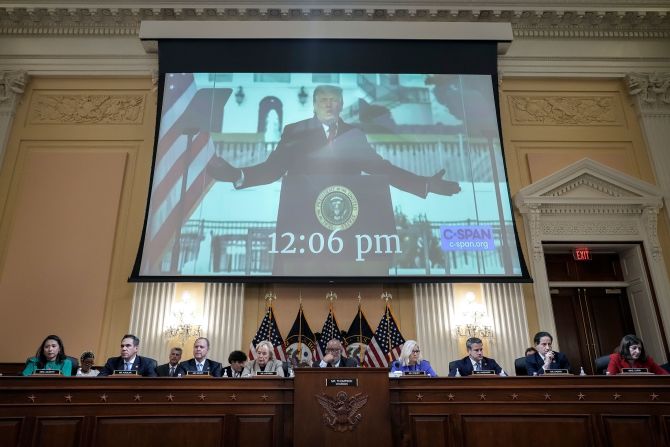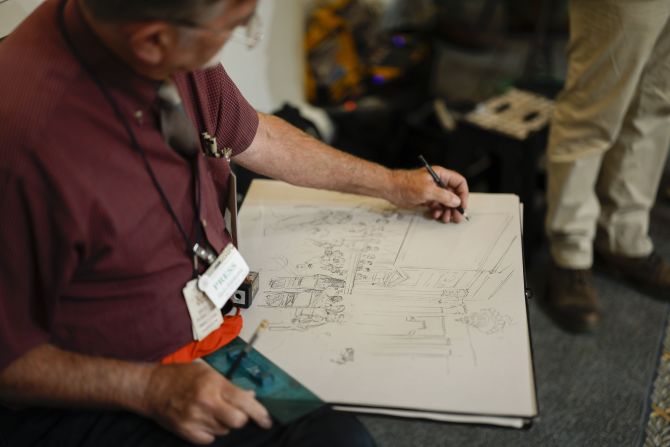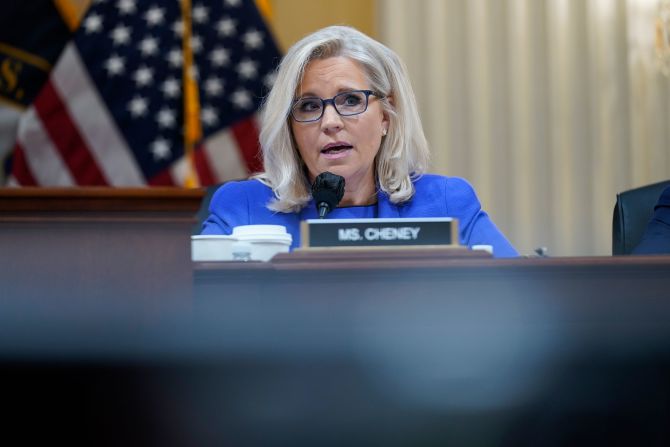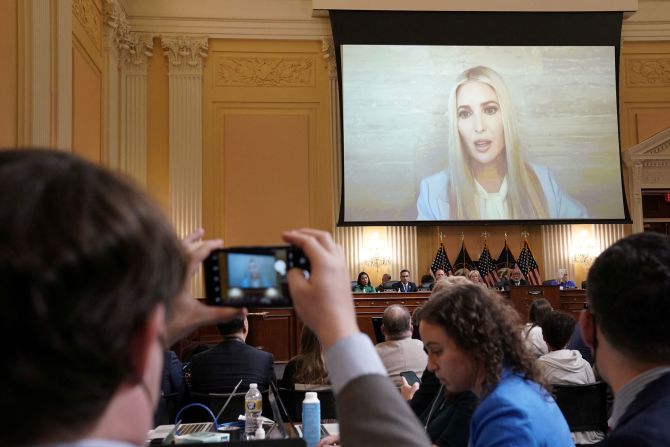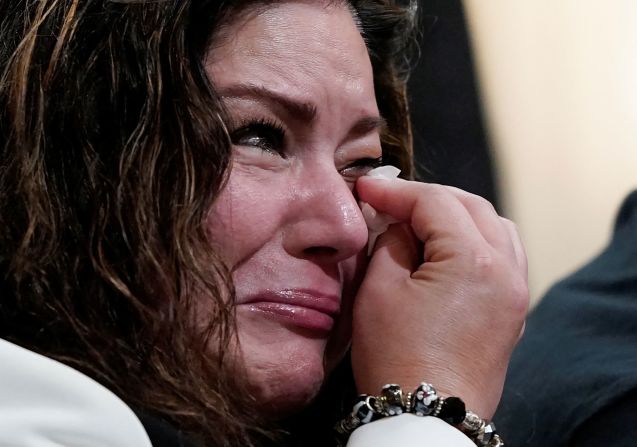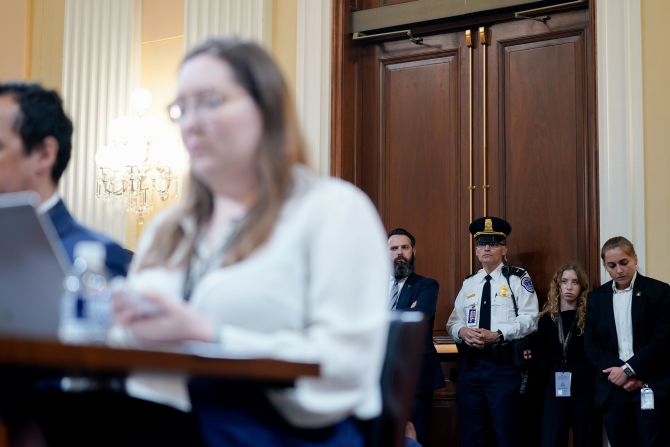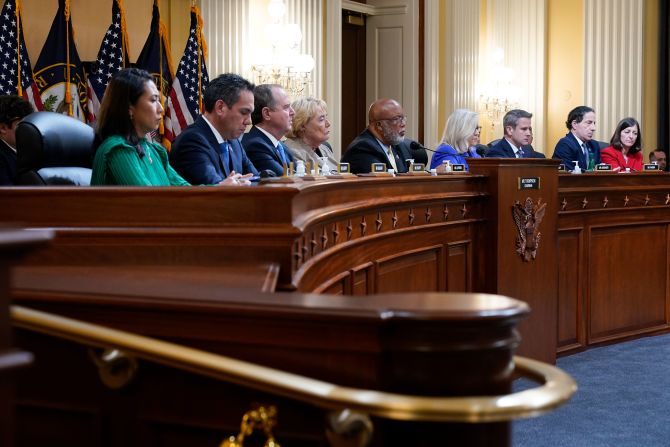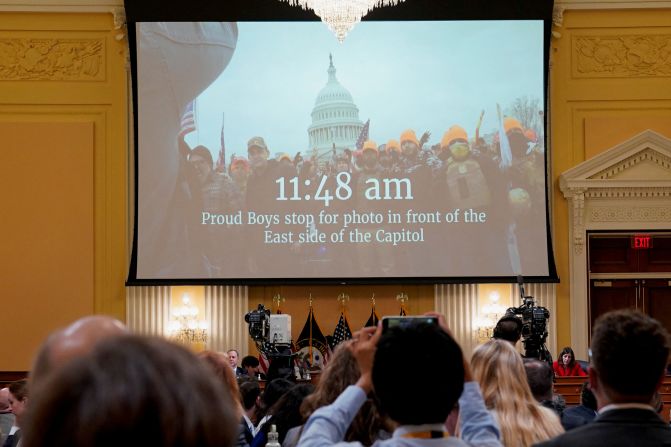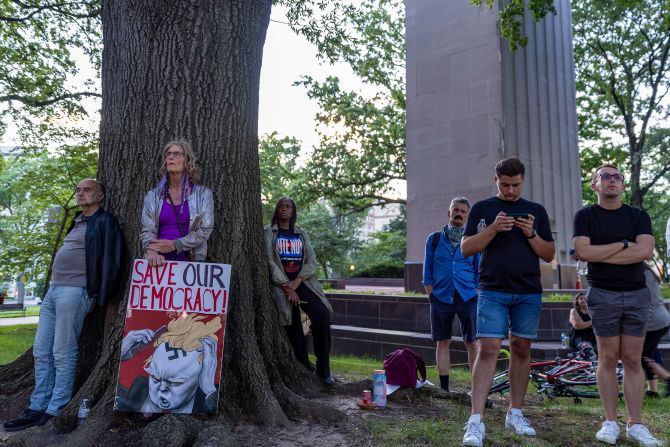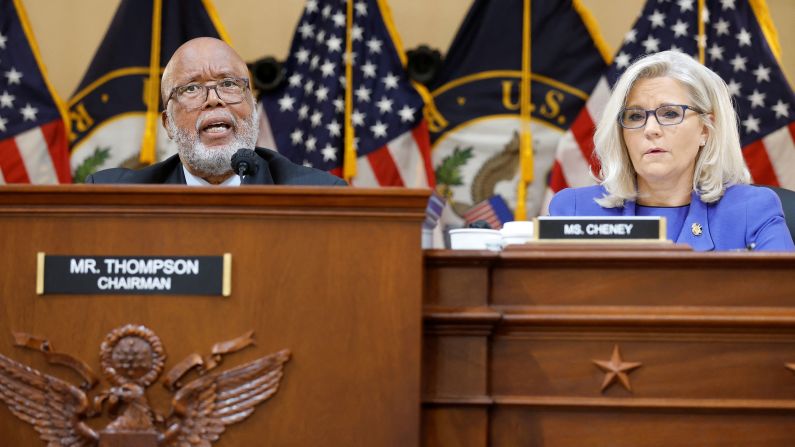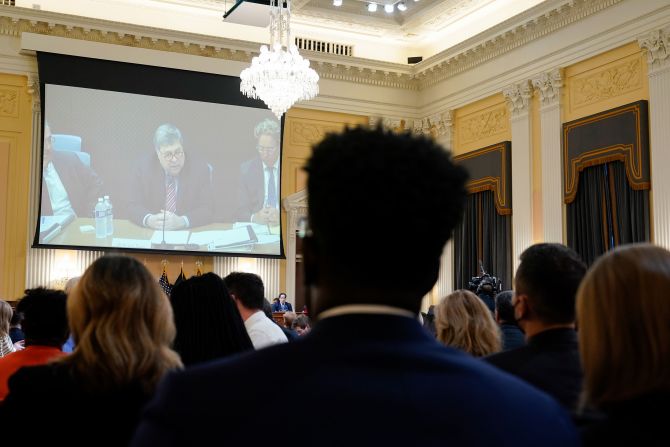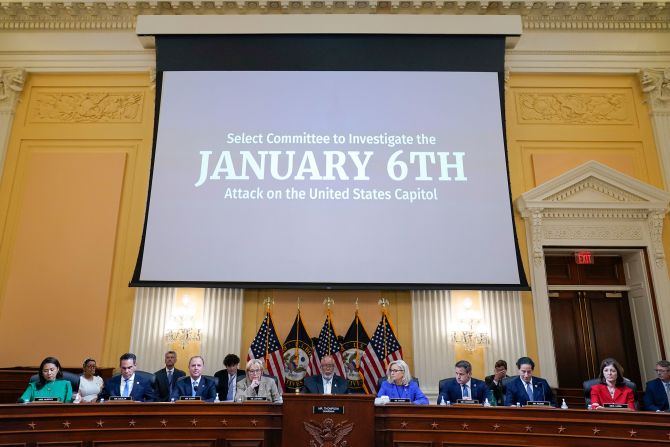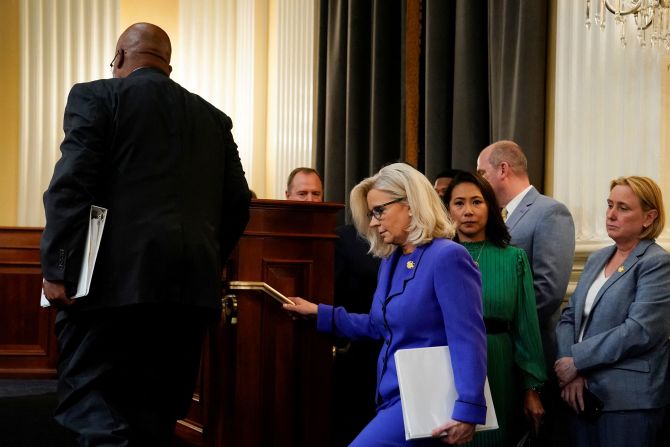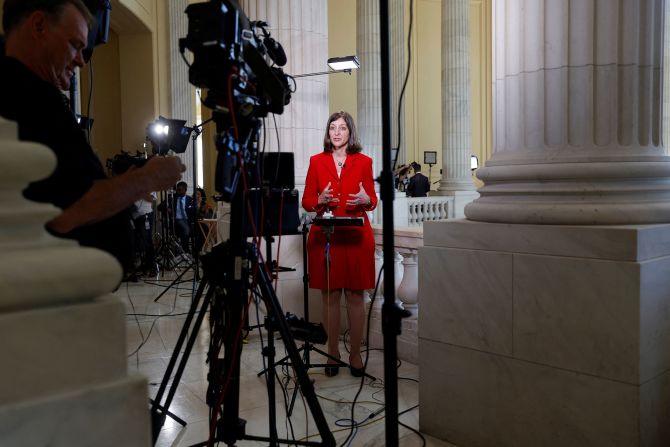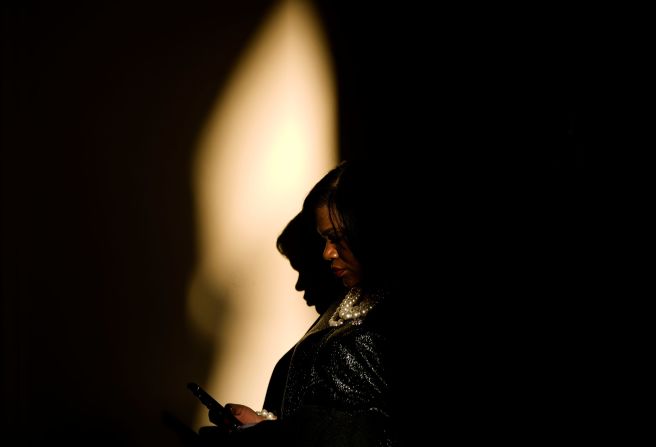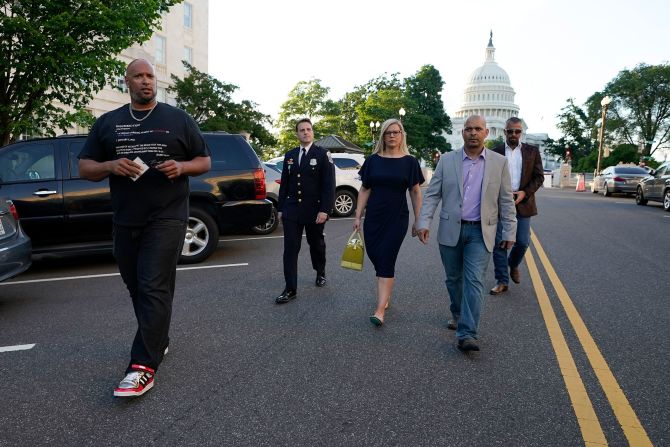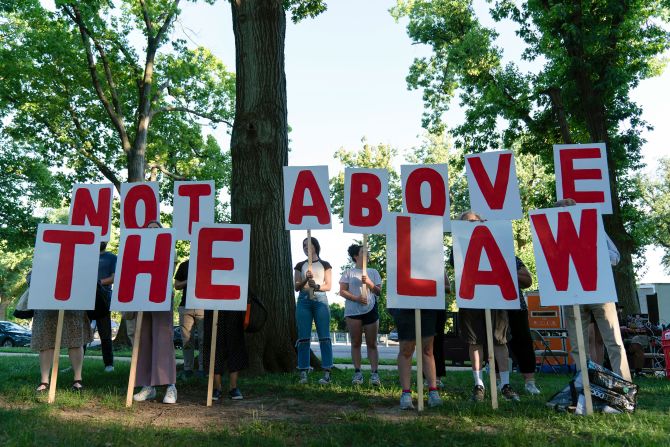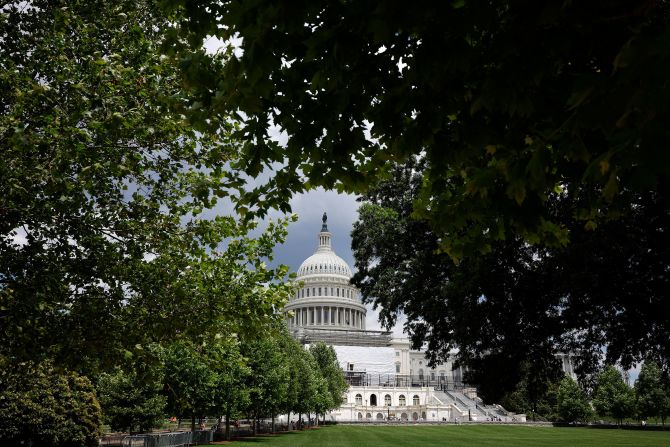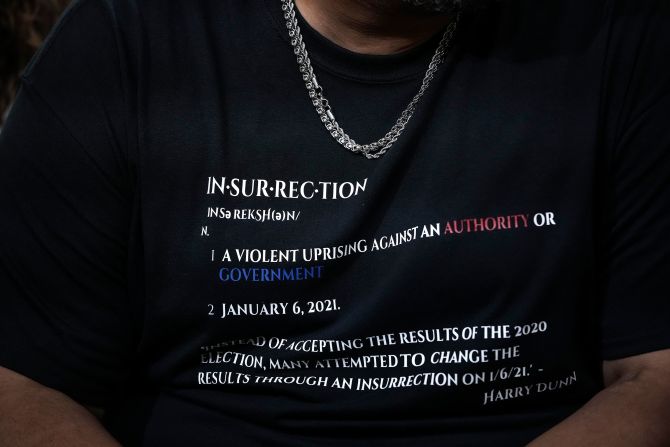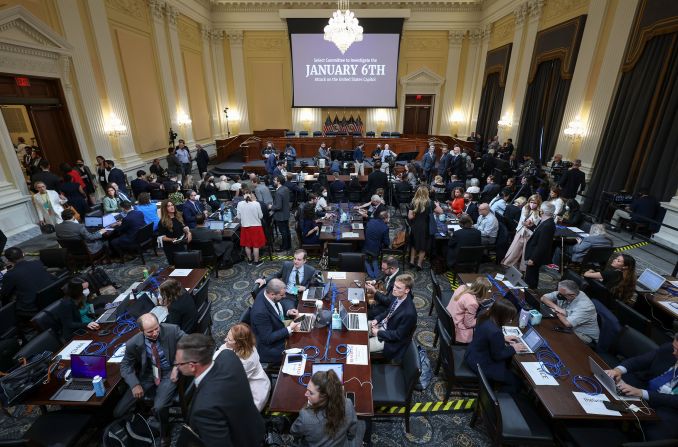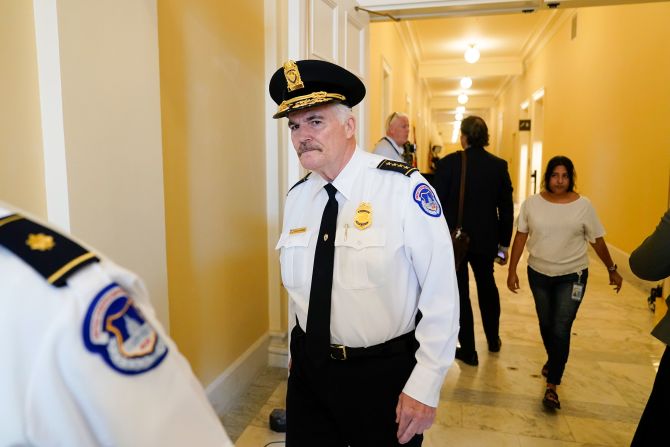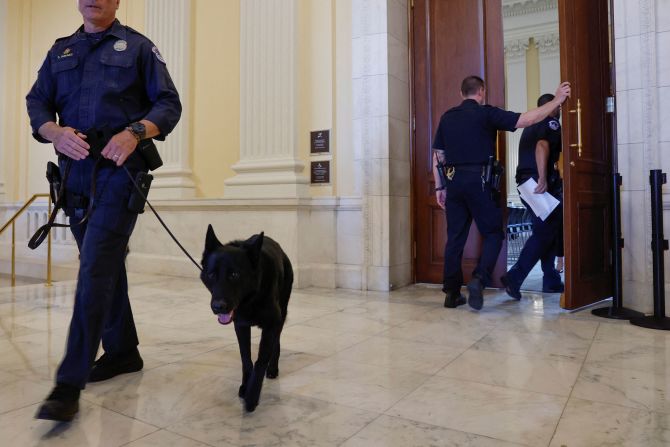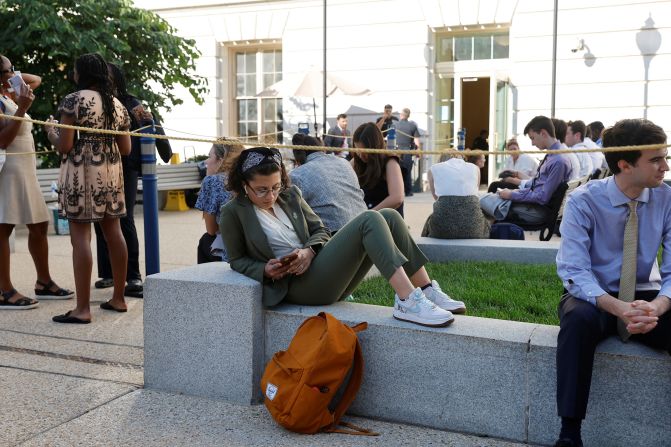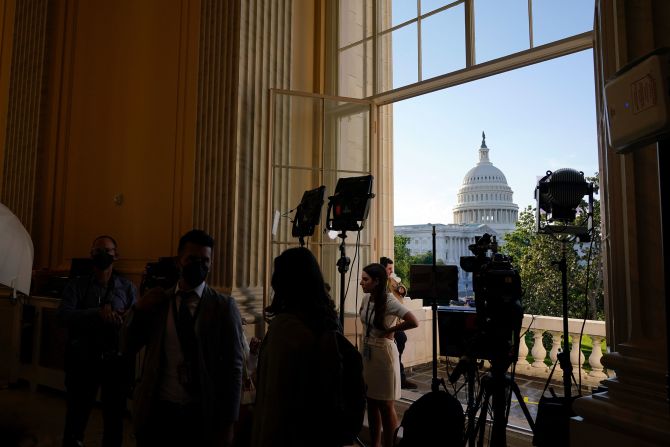A version of this story appeared in CNN’s What Matters newsletter. To get it in your inbox, sign up for free here.
Perhaps the most compelling and damning moment at the first prime-time hearing of the House committee investigating the January 6 Capitol insurrection came at the end.
In a heavily edited montage of video from official testimony and social media, participants in the riot said they had come to protest the 2020 election results and had stormed the Capitol because Donald Trump asked them to.
This is the crux of the committee’s charge, to show that the former President, in his actions and his words, incited the 2021 riot, which was a violent attempt to stop Joe Biden’s election victory from being recognized by the Electoral College.
Seventeen months after the fact, committee members will have to fight to pierce the public consciousness.
Many Americans appear to have moved on to more immediate issues, like soaring inflation and an economy that feels unbalanced.
Conservative media is treating the committee with disdain no matter how compelling the case against Trump.
But the scope and severity of the allegations put forward Thursday should not be ignored: that Trump and his inner circle orchestrated a seven-part plan, a conspiracy to steal the election, which culminated with his followers breaking through police barriers and chasing lawmakers from the Capitol.
The hearing took months of work and thousands of interviews and spliced them into a compelling narrative.
These were some of the key points, about which we’ll hear more in additional hearings this month (the next one is on Monday at 10 a.m. ET):
- Trump’s own Cabinet almost turned on him. Members of Trump’s Cabinet didn’t buy his election fantasy and discussed invoking the 25th Amendment to yank him from his final days in office.
- The election lie was BS. Former Attorney General Bill Barr told Trump the idea that he had won the election was “bullshit.”
- Mike Pence, not Trump, sprang into action. Vice President Pence called the Pentagon for help putting down the insurrection. The White House was more concerned about the perception that Pence was in charge, according to the chairman of the Joint Chiefs of Staff, Mark Milley.
- The campaign knew it had lost. Trump’s campaign adviser Jason Miller testified that the campaign team had understood the data to show Biden was going to win.
- GOP leaders were running from rioters. Republicans today often dismiss the severity of the riot, but the committee played video of staffers fleeing the office of House Republican leader Kevin McCarthy after the Capitol had been breached.
- Trump’s family knew the truth. Trump’s daughter Ivanka, a former top White House aide, said she respected Barr and accepted his opinion on the election. (Trump said Friday in a post on his social media platform that his daughter had “checked out” toward the end of her time at the White House.)
- But they didn’t pay attention. Trump’s son-in-law and former senior adviser, Jared Kushner, dismissed a threat by White House lawyers to resign en masse as “whining.”
- The riot was dangerous for police. A Capitol Police officer testified publicly alongside video of her being knocked unconscious by an advancing horde.
- The insurrection took planning. A documentary filmmaker talking about the planning by Proud Boys before the riot signaled the intent behind the violence. Proud Boys leaders have since been charged with seditious conspiracy.
For how compelling the first prime-time hearing was – and parts of it were arresting – it leaves major holes for the committee to fill in during the remaining public hearings.
Here are the questions that still need answering:
Where is the full testimony?
Seeing a few seconds of Kushner sneering at the idea of White House lawyers quitting is one thing. The public should also see the totality of his testimony.
The same goes for Ivanka Trump, Barr and other recognizable members of the Trump administration.
CNN’s Kaitlan Collins and Gabby Orr wrote that those still in Trump’s orbit or trying to maintain their relationships with him will say their testimony was taken out of context in the short clips released by the committee.
More should be released. House select committee Chairman Bennie Thompson told CNN’s Jake Tapper the committee plans to release transcripts, but he did not give more information.
Is there a direct link between Trump and planning for the riot?
Rep. Liz Cheney, vice chair of the committee, promised that hearings in the coming days will show Trump is directly responsible for the riot – which is an important charge, since Trump has argued he had nothing to do with it.
“President Trump summoned the mob, assembled the mob and lit the flame of this attack,” the Wyoming Republican said in her opening statement. Trump did not intend to give up power, regardless of what it says in the Constitution.
Is there enough evidence for new prosecutions?
These hearings will create a fact base for the insurrection, which is important, but will not themselves create accountability for Trump or his inner circle.
The former President has already survived impeachment twice, which means he can run for president again. All indications are that he plans to.
It is not clear, as we wrote earlier, when or if the Department of Justice will move beyond prosecutions of rally participants to focus on efforts to undermine the election.
CNN’s Evan Perez and Edward-Isaac Dovere wrote before the hearing that Attorney General Merrick Garland was planning to watch but that many Democrats think Garland may have missed his moment to prosecute people from Trump’s circle.
That will remain the biggest question of these hearings – what will come of them? The Department of Justice will need to try to avoid the appearance of influencing the midterm elections by bringing cases just before November.
Why will leaders say things behind closed doors that they won’t say in public?
Barr is the worst offender in this regard. He’s made his feelings known in books and interviews and spoken candidly to the House committee. Why is it so hard to do the same in public and also back when Trump was the President actively trying to overthrow the incoming one?
Clips from Milley are similar. His feelings of frustration with Trump and his contingency planning for a crisis if Trump went rogue have been reported. They might carry more weight with the portion of the public that believes Trump if Milley had said them out loud and in public.
Will anyone who watches Fox see any of this?
Fox viewers might not know what happened at the first prime-time hearing, which the network’s opinion host Tucker Carlson mocked instead of airing.
That’s a shame, because the worried January 2021 text messages of Fox hosts like Sean Hannity imploring the White House to do something about the riot were featured during the hearing.
How can the political realities be changed?
That the two sides of political America are living in different factual realities is not new. It remains to be seen how or whether the House committee’s public hearings can change the minds of people who won’t believe facts placed before them.
Perhaps the hearings can reengage moderate Republicans, but the reality is that, despite the damning presentation on Thursday about Trump, Republicans who have since coalesced around him may control Capitol Hill after November.
In some strange sense, while the economy is driving public frustration with Democrats, the American people may soon give some important power to the party whose recent President tried to upend the democracy.


